 06/07/2012 20:40 06/07/2012 20:40 |
|
| | | OFFLINE | | Post: 25.201
Post: 7.698 | Registrato il: 28/08/2005
Registrato il: 20/01/2009 | Administratore | Utente Master | |
|
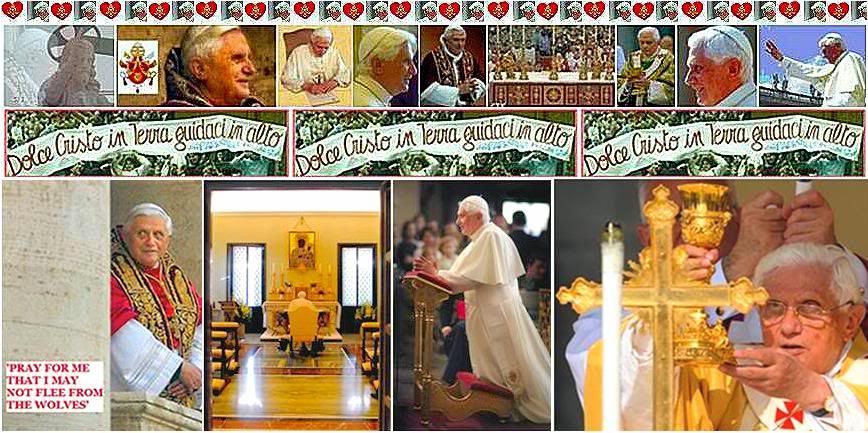
 See preceding page for earlier posts today, 7/6/12.
See preceding page for earlier posts today, 7/6/12.

 Illicit episcopal ordination in Harbin
Illicit episcopal ordination in Harbin
strengthens excommunicated bishops
by Jian Mei

Harbin, CHINA, July 6 (AsiaNews) - Despite a Vatican earning and the criticism of local Catholics, Joseph Yue Fusheng was ordained bishop without papal mandate this morning at Harbin Cathedral (Heilongjiang).
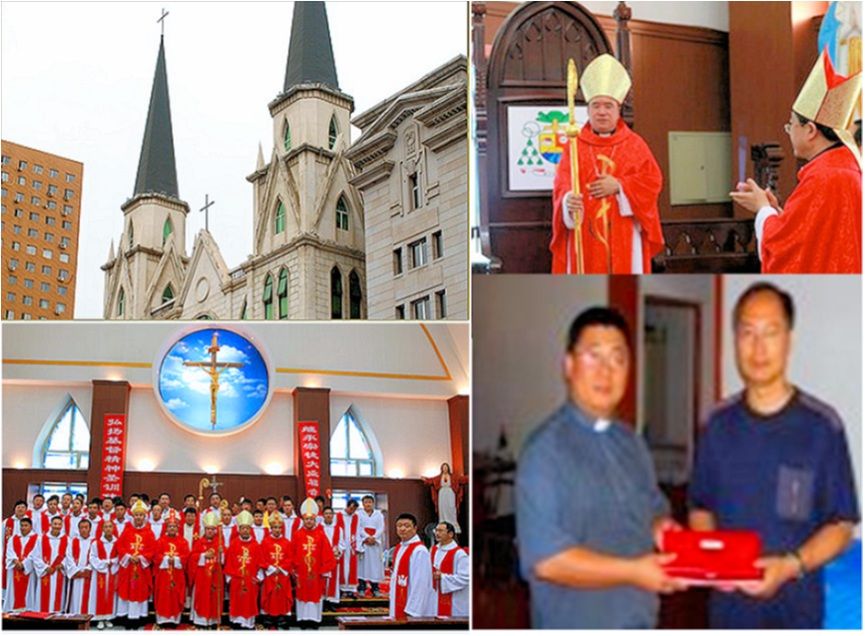 Top panel: The Sacred Heart Church in Harbin; 'Bishop' Yue applauded by one of his consecrators; Bottom panel: All those who took part in the ordination; and Fathers Zhang and Zhao, apostolic administrator of Harbin and assistant, respectively, who were detained by Chinese authorities until after the ceremony.
Top panel: The Sacred Heart Church in Harbin; 'Bishop' Yue applauded by one of his consecrators; Bottom panel: All those who took part in the ordination; and Fathers Zhang and Zhao, apostolic administrator of Harbin and assistant, respectively, who were detained by Chinese authorities until after the ceremony.
The liturgy was presided by Msgr. Johan Fang Xinyao of Linyi (Shandong), national president of the Patriotic Association. Other concelebrating bishops were: Msgr. Pei Junmin of Liaoning, Msgr. Meng Qinglu of Hohhot (Inner Mongolia), Msgr. Wang Renlei of Xuzhou (Jiangsu) and Msgr. Yang Yongqiang of Zhoucun (Shandong).
All bishops were approved by the Holy See, including Msgr. Wang, who was legitimized in May. It is not known whether their participation was spontaneous or was forced, as was the case in other ordinations.
According to a report in "Catholic Church in China", published in Chinese online by the Patriotic Association, there were more than 40 priests and about 1000 faithful present at the Mass. During the liturgy, instead of the mandate of the Pope, the letter from the bishops' council was read, a body approved by Government but not recognized by the Holy See.
Before the Mass ended, Yue told the congregation that he understood the way ahead would be very difficult but he was willing to shoulder the cross. "Today I am chosen as the bishop of Heilongjiang, I know it is a big responsibility. I know to be a bishop is not an honour but a ministry," he said, asking the congregation to support him."
Bishop Joseph Li Shan of Beijing and Bishop Qu Ailin of Hunan sent their congratulatory messages but both were sick and hospitalized, and so could not attend the liturgy.
Now, the leadership of the national Patriotic Association selected in December 2010, comprises five illicit bishops - Ma Yinglin, Lei Shiyin, Guo Jincai, Huang Bingzhang and Yue Fusheng, two legitimate bishops Shen Bin of Haimen, Meng Qinglu of Hohhot, two laymen Liu Yuanlong and Shu Nanwu of Jiangxi, and Sister Wu Lin.
The new bishop Yue Fusheng, 48, was ordained as a priest of Harbin, despite coming from Hebei. He is a vice-president of the PA at the national level. In the 1980s he studied at the seminary in Shenyang. In 1995 he attended the World Youth Day in Manila, where a Chinese delegation arrived for the first time. In the same year, he studied briefly in Hong Kong and South Korea, from March 1997 to July 1998 he studied at the Catholic University of Leuven.
In October 1999 he was nominated to be bishop of the diocese of Heilongjiang, and voted by a committee of the local church until May 2012. According to the PA publication, there are about 80,000 faithful in the diocese.
Yue's ordination has resolved the "disappearance" two days ago of Fr. Joseph Zhao Hongchun, apostolic administrator of Harbin, recognized by the Holy See. When last seen on July 4, he said he had been summoned by Chinese officials for 'talks' which could last a few days. His assistant pastor, Fr. Zhang, was arrested by public security yesterday morning. Both were released by Chinese authroties immediately after the ordination ceremony.
Local sources told AsiaNews that some prominent government officials visited the underground bishop Msgr. Wei Jingyi of Qiqihar, asking him to persuade the Holy See to approve the ordination of Fr. Yue. They also ordered Msgr. Wei not to leave his home at this time.
Some Catholics in Harbin have told AsiaNews that they prayed with great intensity in these days for Yue to repent his decision, for the release of the two underground priests and for the sufferings of the Church of Heilongjiang.
 The banner is from the Chinese site of the State Administration for Religious Affairs, but the only page I could access online in English for the CPCA is a Facebook page that currently has 7 'likes' and a blurb taken from Wikipedia, which is however, pretty direct about what the Chinese government and the CPCA intend to have: nothing less than an autonomous Chinese national Catholic Church that is completely independent of the Vatican - something like but perhaps much worse than the Nazis' German national church.
The banner is from the Chinese site of the State Administration for Religious Affairs, but the only page I could access online in English for the CPCA is a Facebook page that currently has 7 'likes' and a blurb taken from Wikipedia, which is however, pretty direct about what the Chinese government and the CPCA intend to have: nothing less than an autonomous Chinese national Catholic Church that is completely independent of the Vatican - something like but perhaps much worse than the Nazis' German national church.
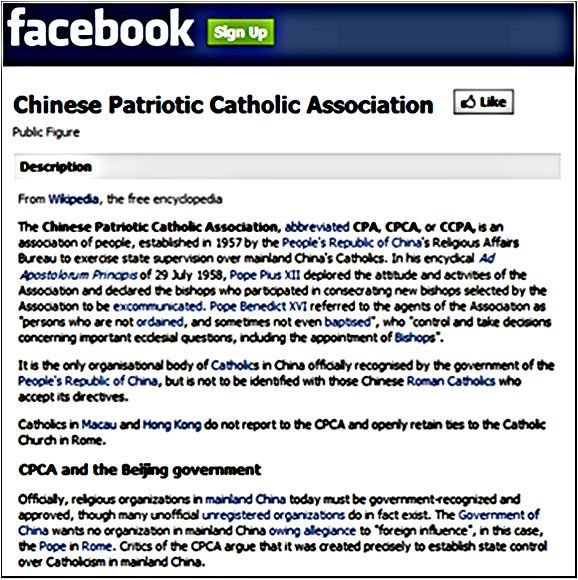 Below is the note from the Congregation for the Evangelization of Peoples earlier this week warning against today's illicit ordination:
Below is the note from the Congregation for the Evangelization of Peoples earlier this week warning against today's illicit ordination:
 Note of the Congregation for the Evangelization of Peoples
To the Apostolic Administration of Harbin (PRC)
Note of the Congregation for the Evangelization of Peoples
To the Apostolic Administration of Harbin (PRC)
The Apostolic administration of Harbin (Heilongjiang Province) is preparing for the ordination of Rev. Joseph Yue Fusheng. In regard to this, please note the following.
1) An episcopal ordination, like the present, without papal mandate, is directly opposed to the Office granted to Peter by the Lord himself and his successors as Head of the College of Bishops, Vicar of Christ and pastor of the Church Universal, and damages the unity of the Church and the whole work of evangelization.
As written by the Holy Father Benedict XVI in his Letter to Bishops, Priests, Consecrated People and Lay Faithful of the Catholic Church in China (May 27, 2007, n. 9), "it is understandable that governmental authorities are attentive to the choice of those who will carry out the important role of leading and shepherding the local Catholic communities, given the social implications which - in China as in the rest of the world - this function has in the civil sphere. "
But we must remember that "on the other hand, the Holy See follows the appointment of Bishops with special care since this touches the very heart of the life of the Church, inasmuch as the appointment of Bishops by the Pope is the guarantee of the unity of the Church and of hierarchical communion. For this reason the Code of Canon Law (cf. c. 1382) lays down grave sanctions both for the Bishop who freely confers episcopal ordination without an apostolic mandate and for the one who receives it: such an ordination in fact inflicts a painful wound upon ecclesial communion and constitutes a grave violation of canonical discipline".
When he issues the apostolic mandate for the ordination of a Bishop, the Pope "exercises his supreme spiritual authority: this authority and this intervention remain within the strictly religious sphere. It is not, therefore, a question of a political authority, unduly asserting itself in the internal affairs of a State and offending against its sovereignty."
Furthermore, the Holy Father adds, "The appointment of Bishops for a particular religious community is understood, also in international documents, as a constitutive element of the full exercise of the right to religious freedom." The appointment of Bishops is a religious matter not political.
2) This episcopal ordination of Harbin will create confusion and divisions among the Catholic community in China. The Catholic community in Harbin does not want an unlawful episcopal ordination.
The survival and development of the Church can only be done in union with the Roman Pontiff to Whom is entrusted the Church herself, and not without His consent, as happens with ordinations that, such as this, have no Papal mandate. If one wants the Church in China to be Catholic, one must not proceed to episcopal ordinations that do not have the prior approval of the Holy Father.
3) Rev. Yue Fusheng was informed that he does not have papal approval: his ordination is unlawful, he will lack the authority to govern the diocesan Catholic community, and the Holy See will not recognize him as the Bishop of Harbin.
For his illegitimate ordination he will be subjected to the effects of the penalty incurred for violation of the norm of canon 1382 of the Code of Canon Law (cf. Declaration of the Pontifical Council for Legislative Texts of June 6, 2011) .
4) The consecrating Bishops are exposing themselves to serious canonical penalties prescribed by the law of the Church (in particular by canon 1382 of the Code of Canon Law).
5) The government Authorities were informed that the ordination of Rev. Yue Fusheng is without the approval of the Holy Father. It would contradict those signs of dialogue advocated by the Chinese Party and the Holy See.
From the Vatican, July 3, 2012
[Modificato da TERESA BENEDETTA 07/07/2012 04:01] |
| |
|
| |
 07/07/2012 03:21 07/07/2012 03:21 |
|
| | | OFFLINE | | Post: 25.203
Post: 7.699 | Registrato il: 28/08/2005
Registrato il: 20/01/2009 | Administratore | Utente Master | |
|

 Chief Rabbi of Rome leads
Chief Rabbi of Rome leads
attack on Yad Vashem's
changes to Pius XII caption
by Giacomo Galeazzi
Translated from

VATICAN CITY, July 5 - The spiritual leader of Europe's oldest Jewish community, the Cheif Rabbi of Rome, Riccardo Di Segni, is protesting Yad Vashem's modification of the caption for Pius XII in the Holocaust Museum's photo gallery.
"My historical evaluation of the behavior of Pius XII during the dark years of the persecution remains strongly critical, whereas Yad Vashem has suspended its judgment and sustains that different opinions are possible about the subject. I think it is a solution of convenience, of compromise, aimed to please international public opinion in defiance of historical reality". Di Seni told VATICAN INSIDER.
[How can an intelligent man, who is also a spiritual leader, be so closed as to think that only his opinion is valid, that no other opinions are possible? And what 'historical evaluation' can he make when his mind is already made up? Is he a historian, to begin with, and if he is, how does he measure against the historian-scholars at Yad Vashem, who have been researching this subject since the Holocaust Memorial was begun? Who is he to unilaterally and singly declare that a new caption which leaves the question open is 'in defiance of historical reality'? It is as if he, Riccardo Di Segni, is saying, 'Whatever I believe about Pius XII is historical reality - I don't care what the facts show, or what historians think!']
The new development has stirred up the waters again in relationships between Christians and their 'older brothers'. Even the Jewish community's Rome newspaper Pagine Ebraiche has been reporting a spectrum of reactions from the community, in some ways diametrically opposed.
The new formulation of Yad Vashem regarding the actions (or inaction) of Pius XII towards the Jews in World War II is less sweepingly negative and more prudent, and does explicitly say that the question remains open.
Di Segni goes on:
The Yad Vashem panel that was critical of Pius XII has been replaced with a longer text which presents two opposing judgments, and avoids coming to a conclusion pending further clarifications a timid allusion to the 2014 opening of the entire Vatican Archive on the papers of Pius XII's Pontificate).
But despite the pathetic denial by Yad Vashem's administration, it is difficult not to doubt that the change was the result of Vatiocan diplomatic pressure. [WHOA! Why is the official denial 'pathetic' just because he disagrees with Yad Vashem. And what diplomatic pressure can the Vatican possibly apply on Israel, where the Church is hostage to the Israeli government for things as simple as getting work visas for priests assigned to Israel? Di Segni is ranting, going along on sheer bile which has seemed to soak through his brain, making him unable to think!]]
By yielding to pressure, it becomes no longer possible for them to criticize the Pope,[And he thinks there is no criticism in the new capation????] but even a defense would have been problematic, so they settled for this strange solution. Which has not satisfied defenders of Pius XII and leaves us bitter in the mouth. [Who is 'us'? All Roman Jews? All Italian Jews? All European Jews? Why can't he simply accept the facts as they are: An international conference was hosted by Yad Vashem in 2009, and based on information presented - duly sifted and checked by Yad Vashem researchers - the Museum decided to change the caption accordingly.]
In a place like Yad Vashem, politics should remain remote and separate. [YEAH? And what was the original extremely offensive caption but supremely and exclusively poltical-ideological? What is the whole Yad Vashem concept except ultimately, dramatizing the Holocaust in order to to underscore the right of Israel to have its own homeland in the lands that were given by the Lord to the ancient patriarchs of Israel?]
It is not acceptable that a group of bureaucrats, diplomats and perhaps even politicians would even have considered the Vatican requests - in exchange for who knows what? [Precisely! What can the Vatican possibly offer Israel other than good will and fraternal wishes?] - more important for Israel than our most painful memories.
[Is Di Segni listening to his words when he says these? To accuse Israel of betraying the Holocaust for his (Di Segni's) imagined 30 silver coins from the Vatican? He is raving mad!]
Just as harsh is Ambassador Sergio Minerbi, a distinguished representative of the Italian Jewish community and considered among
the best experts on Israeli-Vatican relations:
What a shame! All it took was one protest from the Apostolic Nuncio to make Yad Vashem change the caption! [That is, of course, a blatant falsehood. The Nuncio protested it when it opened in 2005 - it has taken seven years for Yad Vashem to make the change - three years after the international conference it hosted to hear researchers on the topic.]
I do not know if it is out of incompetence on the subject or in order to please everyone, nor do we know how much influence the American Gary Krupp had in this - Krupp, so proud of his Vatican decoration, as a Knight of Gregory the Great! [Now he accuses Yad Vashem of incompetence! Now he accuses Yad Vashem of trying to please everyone! It is an insult to the very idea of a Holocaust Museum to think that it could be run for any other reason but to represent the deepest most atavistic feelings of all Jews, Israeli or otherwise, and that it could ever place any foreign interest above that purpose. And if its researchers and scholars also want to serve the whole truth at the same time, why shouldn't they?
As for Gary Krupp, he's Jewish, and a devout one, who totally deserves his papal knighthood, but it is giving him too much credit to think that he could move Yad Vashem in any way - anti-Pius Jews probably condemn him as a traitor to his religion since his mind is made up about Pius XII, as much as Di Segni and Minerbi have done, with the difference that Krupp has personally archived all the pro-Pius XII material he can lay his hands on, and the two Italians are just winging it on sheer prejudice! It is mind-boggling how supposedly intelligent but blindly biased persons can lose all common sense! These are the Jews who, whatever the Vatican Archives will eventually show, will still say, "I don't care what the Archives show. Pius XII was singlehandedly responsible for the Holocaust, and that's that!" Perhaps there is a special circle in Jewish hell for this kind of dishonesty!]
In the new text, Yad Vashem acts as if it were neutral on the subject and limits itself to saying that some critics claim "there was a moral failure". Doesn't the institution have its own opinion on such a sensitive matter? [So Minerbi would reduce history to a matter of opinion! Yad Vashem is supposed to be a historical museum. Even if it has an ideological point of view, it was the most basic historical courtesy for them to revise the caption. although it continues to be tendentious against Pius XII.] Then what's the use of this behemoth institution and what is it teaching its numerous researchers? [They're researchers! They find what facts they can. The Museum can't teach them that! Nor are they there to rubber-stamp whatever the Museum tells them. Then they'd just be mindless clerks, not researchers.]
How is it possible for Yad Vashem to observe that Pius XII's actions in World War II "is an open question among scholars"? [BECAUSE IT IS - at least for the cautious ones who want to wait until they see what's in the Vatican Archives until they declare themselves. But those who have bothered to look through the 12-volume set of Archive documents culled by scholars in the 1960s on orders of Paul VI know there is more than enough material to make the case for Pius XII ten times over. And presumably, much of it was presented by scholars who attended the Yad Vashem conference on Pius XII in 2009. Which eventually led to caption modification.]
It must be remembered in any case that Pius XII never once said the word Jews during the entire World War II - and this, at least, is not an object of controversy. Nor did he react, publicly or behind tghe scenes, to the deportation of Jews from Rome. His diplomatic meetings in those days were limited to the question of keeping Rome an open city or how to ensure food supplies to its citizens. [Surely, those were monumental problems for the city: If the Nazis had stopped treating Rome as an open city, they could have bombed all or parts of it - including the Vatican - to kingdom come, any time they pleased, blowing up everyone, Jews included, not to mention one of mankind's greatest repositories of culture and history! And food supplies for the city in wartime? Were these less important concerns that would not have been jeopardized if the Pope made it his priority to be a public advocate for the Jews instead who were a minority in Rome? He had a moral duty to all Roman citizens, not just the Jews! All his critics today would probably have done exactly as he did if they had been in his place at the time.]
Yad Vashem should follow the example of the Jesuit John Morley, who ended his book on the Shoah with these words: "One must conclude that Vatican diplomacy failed with respect to the Jews during the Holocaust, by not doing everything possible to come to their aid".
[It's sickening to come across another sanctimonious Jesuit. Vatican diplomacy had enough on its hands trying to protect the Catholic communities all over occupied Europe. The anti-Pius Jews all act as though the Pope did not have to worry about Catholics during the war, as if he should have focused his attention only on the Jews.
And who says Hitler would have listened if Pius XII had become the public advocate for the Jews? Hitler decided on the Final Solution (Endloesung) in 1942 - he did not call it the Final Solution, just to roll it back because a man in white who had no army divisions spoke out against it! No one could have stopped the Nazi extermination campaign. The Allies did not even try. Their priority was to win the war, and they did not even get into Europe until after June 4, 1944. Why aren't Churchill and Roosevelt spat upon like the anti-Pius Jews do on the Pope? And weren't there any prominent and powerful Jews outside Europe at the time who could have organized something?
The bias against Pius XII - a historical afterthought inspired by perhaps the most successful Soviet propaganda ploy in history - seems to me a distillation of every anti-Catholic feeling Jews ever had. And people like Di Segni and Minerbi vent themselves the way they do every chance they can precisely to reciprocate every injustice and anti-Jewish feeling ever directed by Catholics against Jews through the centuries.]
A very different perspective is taken by historian Anna Foa, the first Jewish person to write for and contribute regularly to L'Osservatore Romano:
The modification of the caption to the Pius XII panel in Yad Vashem was being planned for some time. But contrary to what the media have concluded, I don't think the new caption represents a softening of the judgment against Pius XII compared to the original which expressed a clear condemnation of Pius XII's inaction in the face of the extermination of the Jews.
What the new caption reflects, in my opinion, is a judgment that is more historical than moral - the awareness that the debate is still open, but to which much new documentation [newly considered by Yad Vashem, that is] has contributed to change, and to which it is expected that the opening of the Pius XII archives will bring other relevant contributions.
I thought that the original caption was the result of an absolute and dogmatic judgment which ignored the existence of a debate on the historiographic level or of new documentation at the level of finding detailed facts. The new caption opens the way for further changes, because history is based on documents and their interpretation, not on political prejudice or common sense. With their courageous gesture, the officials of Yad Vashem have shown of being fully aware of this.
Diplomat and essayist Vittorio Segre comments:
The need for a revision of the caption to the Pius XII panel at Yad Vashem has been considered for some time. The fact that the institute finally changed it shows that we are nearing the completion of new comprehensive accords between Israel and the Vatican which has been a work of decades, and that which may finally be ready for signing.
The battle on the part of those Jews who wish to condemn Pius XII to a permanent and unappealable state of moral condemnation is not sustainable in the long run, from the political point of view and even from the historiographic. But it must be understood that this issue, however you look at it, can only compel limited interest today among those whom the parties to the dispute supposedly represent.
It matters little to Israeli public opinion, and even less to a Catholic world which is more concerned today with the growing violence against Christians in Africa and in the Muslim world. There is a dispute that has to be brought to an end between Israel and the Vatican, and final agreement should take place in the best climate possible, without being conditioned excessively by the wounds that history has left us.
[Modificato da TERESA BENEDETTA 07/07/2012 03:42] |
| |
 07/07/2012 05:42 07/07/2012 05:42 |
|
| | | OFFLINE | | Post: 25.204
Post: 7.700 | Registrato il: 28/08/2005
Registrato il: 20/01/2009 | Administratore | Utente Master | |
|
 I just realized that we are now just a year and two weeks away from the next international WYD to be held in Rio July 23-28, 2013... It will be a major effort for our beloved Papino who will have turned 86 by then. And yet, there's talk of a second country to visit at that time... Lord, keep him healthy and strong!
Panama, Colombia and Chile
I just realized that we are now just a year and two weeks away from the next international WYD to be held in Rio July 23-28, 2013... It will be a major effort for our beloved Papino who will have turned 86 by then. And yet, there's talk of a second country to visit at that time... Lord, keep him healthy and strong!
Panama, Colombia and Chile
vying to he visited by Pope
enroute to WYD 2013 in Rio

Rome, Italy, Jul 6, 2012 (CNA/Europa Press) - Pope Benedict XVI could make a stopover in a Spanish-speaking Latin American country during his visit to the region for World Youth Day 2013 in Rio de Janeiro.
According to reports in the Italian media, three countries - Panama, Colombia and Chile - are vying for the chance to host the Pontiff as he makes his way to Brazil next year, in what will be his second visit there as Pope.
The Colombian government has already extended an invitation to the Pope, which was echoed by a group of bishops making their ad limina visit to the Holy See on June 22. According to the Italian daily La Stampa, the Pope responded, “God will decide.”
The newspaper also reported that Panama is also interested in hosting a papal visit in 2013 on the 500th anniversary of the creation of the first diocese in the Americas, Santa Maria La Antigua in Panama.
The bishops of Panama have convened a special Jubilee Year which will begin this year on November 28 to celebrate the occasion. The prefect of the Congregation for the Bishops and the president of the Pontifical Commission for Latin America, Cardinal Marc Ouellet, will be the Holy Father’s special envoy for the event.
La Stampa reports that Panama’s vice chancellor, Francisco Alvarez De Soto, invited the Pope to visit his country when he met the Pope in May. The Holy Father’s response was once again, “It all depends on God.
Chile’s Ambassador to the Holy See, Fernando Zegers Santa Cruz, issued his own invitation to the Pope on June 20, repeating the invitation made by President Sebastian Pinera in March of 2011 to visit Chile.
The success of the Pope’s visit to Mexico and Cuba in March of this year makes the possibility for an additional stopover in Latin America more likely.
|
| |
 07/07/2012 23:13 07/07/2012 23:13 |
|
| | | OFFLINE | | Post: 25.205
Post: 7.701 | Registrato il: 28/08/2005
Registrato il: 20/01/2009 | Administratore | Utente Master | |
|
 Saturday, July 7, 13th Week in Ordinary Time
Feast of BLESSED EMMANUEL RUIZ AND COMPANIONS (d Damascus 1860), Martyrs
Saturday, July 7, 13th Week in Ordinary Time
Feast of BLESSED EMMANUEL RUIZ AND COMPANIONS (d Damascus 1860), Martyrs
Ruiz, born in 1804 in Santander, Spain, but little is known of his life, except that he became a Franciscan missionary and went to Damascus as a missionary at a time of anti-Christian riots in Syria, with thousands of Christians losing their lives. Ruiz was the head of the local Franciscan convent. When Muslims sought them out, he and seven fellow friars and three Maronite laymen were captured and subjected to great tortures before being executed for refusing to become Muslims. Ruiz and his fellow martyrs were beatified in 1926. [I can find no images online, not even in a Spanish-language search, nor in Franciscan sites online.]
Readings for today's Mass:
www.usccb.org/bible/readings/070712.cfm

Today is the fifth anniversary of Summorum Pontificum.
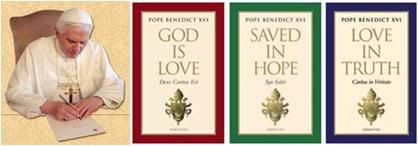
... and the third anniversary of Caritas in veritate.
The Holy Father is on vacation.
No Vatican bulletins today other than a local episcopal appointment.
[Modificato da TERESA BENEDETTA 07/07/2012 23:16] |
| |
 08/07/2012 10:29 08/07/2012 10:29 |
|
| | | OFFLINE | | Post: 25.206
Post: 7.702 | Registrato il: 28/08/2005
Registrato il: 20/01/2009 | Administratore | Utente Master | |
|

 Holocaust museum defends
Holocaust museum defends
modified caption on Pius XII
against Rome rabbi's polemic
Translated from the 7/7/12 issue of

JERUSALEM, July 6 - The management of Yad Vashem Museum has responded with a detailed letter to the polemical commentary of the Chief Rabbi of Rome, Riccardo Di Segni, against the modification of the caption for the Pius XII panel in the Museum's photo gallery.
The letter was signed by historians Dan Michman, Dina Porat and Bella Gutterman, the top scientists at Yad Vashem, and Museum consultant Yehuda Bauman, internationally recognized authority on Shoah studies.
They denied any political pressure on the matter and defended the decision as having been made for better clarity in the light of new historical evidence accepted by the Museum.
After citing the 'international reputation' of the Museum's 'academic integrity, the Museum management deplored 'disinformatiom' that the modification was made in response to 'any pressure from the Vatican:, which they called 'totally unfounded'.
Rather, the new caption was an updating that "reflects ongoing research and information gathering" which, in 2009, had prompted the late David Bankier, then chief of the Shoah Research Institute of Yad Vashem, to convoke an international seminar of historians of various orientations in order to examine more deeply and re-evaluate the acts of Pope Pius XII during the Second World War.
The acts of the seminar, which will soon be published, were the bases for the new caption, the museum officials said. They also added that they took into consideration the observations of visitors to the Museum who found the presentation of Pius XII 'controversial' and demanded more precision.
The letter to Di Segni goes over the statements in the new caption point by point, and points out that it states the charges made against the Pope for 'moral failure', along with the reasons given in his defense. Once against, the Museum officials request the opening of the full Vatican archive on the documents of Pius XII's Pontificate. [The Vatican has already said that should be expected by 2014, after the papers are completely catalogued.]
P.S. July 9, 2012
Now that I've had time to check back on previous reports I had posted about the Yad Vashem captions, I find I had forgotten the most significant objection I had posed at the time - that the Pius XII panel is located within the Hall of Shame of Yad Vashem's photo gallery. Why has the Vatican not protested that placement itself?
Panel with old caption:
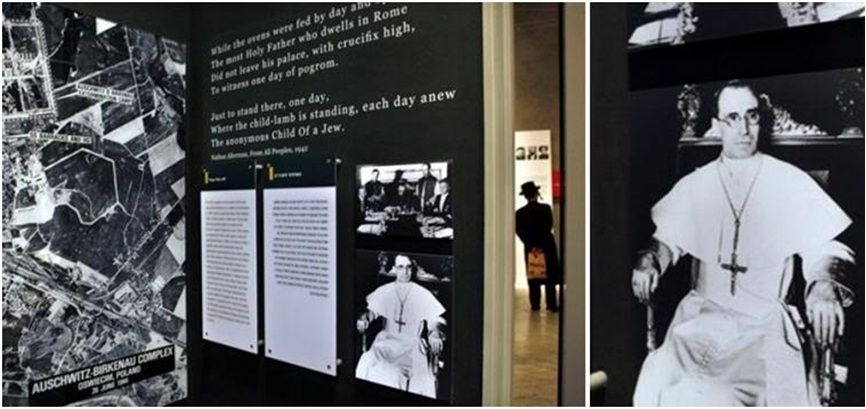
The old caption:
Pope Pius XII
In 1933, when he was Secretary of the Vatican State, he was active in obtaining a Concordat with the German regime to preserve the Church's rights in Germany, even if this meant recognizing the Nazi racist regime. When he was elected Pope in 1939, he shelved a letter against racism and anti-Semitism that his predecessor had prepared. Even when reports about the murder of Jews reached the Vatican, the Pope did not protest either verbally or in writing. In December 1942, he abstained from signing the Allied declaration condemning the extermination of the Jews. When Jews were deported from Rome to Auschwitz, the Pope did not intervene. The Pope maintained his neutral position throughout the war, with the exception of appeals to the rulers of Hungary and Slovakia towards its end. His silence and the absence of guidelines obliged Churchmen throughout Europe to decide on their own how to react.
Panel with new caption:
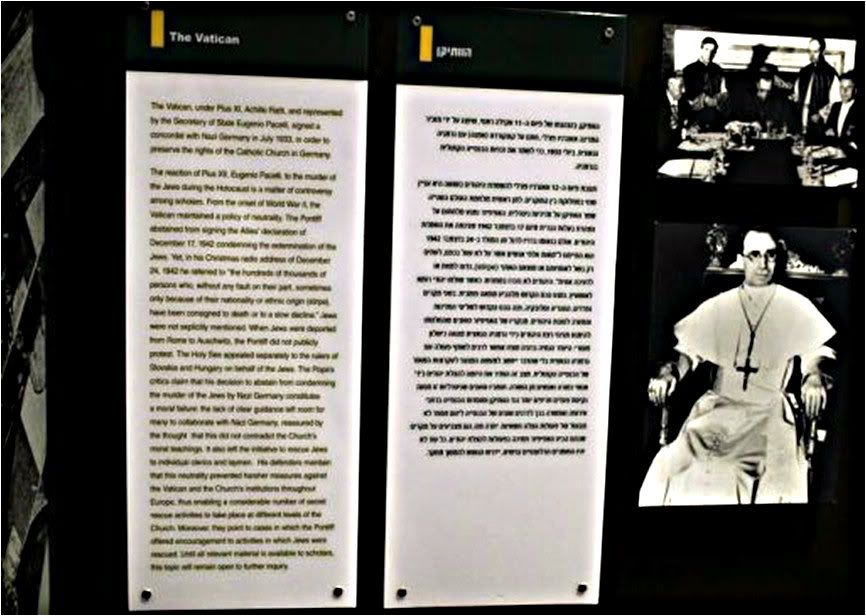
The new text:
The Vatican
The Vatican, under Pius XI, Achille Ratti, and represented by the Secretary of State Eugenio Pacelli, signed a concordat with Nazi Germany in July 1933, in order to preserve the rights of the Catholic Church in Germany.
The reaction of Pius XII, Eugenio Pacelli, to the murder of the Jews during the Holocaust is a matter of controversy among scholars. From the onset of World War II, the Vatican maintained a policy of neutrality. The Pontiff abstained from signing the Allies' declaration of December 17, 1942 condemning the extermination of the Jews. Yet, in his Christmas radio address of December 24, 1942 he referred to “the hundreds of thousands of persons who, without any fault on their part, sometimes only because of their nationality or ethnic origin (stirpe), have been consigned to death or to a slow decline.” Jews were not explicitly mentioned. When Jews were deported from Rome to Auschwitz, the Pontiff did not publicly protest. The Holy See appealed separately to the rulers of Slovakia and Hungary on behalf of the Jews.
The Pope’s critics claim that his decision to abstain from condemning the murder of the Jews by Nazi Germany constitutes a moral failure: the lack of clear guidance left room for many to collaborate with Nazi Germany, reassured by the thought that this did not contradict the Church’s moral teachings. It also left the initiative to rescue Jews to individual clerics and laymen.
His defenders maintain that this neutrality prevented harsher measures against the Vatican and the Church's institutions throughout Europe, thus enabling a considerable number of secret rescue activities to take place at different levels of the Church. Moreover, they point to cases in which the Pontiff offered encouragement to activities in which Jews were rescued. Until all relevant material is available to scholars, this topic will remain open to further inquiry.
Since I can find no other picture of the new caption, I do not know whether the poem found above it on the panel in the first picture has been retained. If it has not been removed, they might as well not have modified the caption at all - You can clearly read what it says even on the photo, but for the record, here it is:
While the ovens were fed by day and by night,
The most Holy Father who dwells in Rome
Did not leave his palace, with crucifix high,
To witness one day of pogrom.
Just to stand there, one day,
Where the child-lamb is standing, each day anew -
The anonymous Child of a Jew.
I do not understand why, say, the CNS correspondent in Jerusalem, or any other writer for Catholic media who happens to be in Jerusalem, has not gone to the Museum to check this out personally.
[Modificato da TERESA BENEDETTA 09/07/2012 18:15] |
| |
 08/07/2012 12:00 08/07/2012 12:00 |
|
| | | OFFLINE | | Post: 25.207
Post: 7.703 | Registrato il: 28/08/2005
Registrato il: 20/01/2009 | Administratore | Utente Master | |
|

 I did not realize when I posted William Oddie's commentary on the new CDF Prefect in the preceding page that Andrea Tornielli had, in fact, sought out theologian-liturgist Don Nicola Bux - a consultor to both the CDF and the Congregation for Divine Worship, as well as to the Office of Pontifical Liturgical Celebration - to ask him about the major theological 'issues' that have been raised about Mons. Mueller. His answers should dissipate undue alarm. (Of course, it would be best to hear from Mueller himself!] I have not had a chance to read any of Mueller's theological writings, but if his friend Gustavo Gutierrez was careful enough not to overstep the limits of orthodoxy in his writings on liberation theology, then I imagine Mueller is intelligent enough not to do so himself in his own theology. And if he had, Joseph Ratzinger would not have given him a pass.
Fr. Bux on Mueller's theology:
I did not realize when I posted William Oddie's commentary on the new CDF Prefect in the preceding page that Andrea Tornielli had, in fact, sought out theologian-liturgist Don Nicola Bux - a consultor to both the CDF and the Congregation for Divine Worship, as well as to the Office of Pontifical Liturgical Celebration - to ask him about the major theological 'issues' that have been raised about Mons. Mueller. His answers should dissipate undue alarm. (Of course, it would be best to hear from Mueller himself!] I have not had a chance to read any of Mueller's theological writings, but if his friend Gustavo Gutierrez was careful enough not to overstep the limits of orthodoxy in his writings on liberation theology, then I imagine Mueller is intelligent enough not to do so himself in his own theology. And if he had, Joseph Ratzinger would not have given him a pass.
Fr. Bux on Mueller's theology:
'If statements are taken out of context,
it's easy to condemn anyone'
by Andrea Tornielli
Translated from the Italian service of

VATICAN CITY, July 5 - The appointment of the Bishop of Regensburg, Gerhard Ludwig Mueller, to be the new Prefect of the Congregation for the Doctrine of the Faith, was preceded and followed by the dissemination - first through anonymous e-mails, and then through online articles, including the website of the FSSPX's Italian district - of fragments excerpted from his writings presented as questionable statements with respect to Catholic doctrine.
Are they? VATICAN INSIDER interviewed Vatican theologian Don Nicola Bux on the specific issues raised.
In his book on dogma, Mueller writes that the doctrine on the virginity of Mary "does not really refer to specific physiological characteristics of the natural process of childbirth".
The Catechism of the Catholic Church states that the corporeal aspect of Mary's virginity all has to do with the fact that Jesus was conceived without human semen, but by the action of the Holy Spirit. It is a divine action that surpasses every human understanding and possibility. The Church professes the real and perpetual virginity of Mary but does not go into physical specifics. Neither did the Councils nor the Fathers of the Church.
I think that is how one must understand what Mueller wrote, who is not proposing a 'doctrine' nor does he deny the perpetual virginity of Mary, but was warning against what one might call 'Capharnaumism', that manner of reasoning 'according to the flesh' and not 'according to the spirit', which emerged in Capharnaum among the Jews after Jesus's discourse on the bread of life.
In 2002, Mueller in his book Die Messe - Quelle des christlichen Lebens (The Mass - Spring of Christian Living), writing about the Eucharistic sacrament, wrote that "the body and blood of Christ do not indicate material components of the human person of Jesus during his earthly life nor in his transfigured corporeality. Here, Body and Blood signify the presence of Christ in the signs of bread and wine".
It was precisely in Capharnaum that the terms used by Jesus - body and blood - were misunderstood to be anthropomorphic, and the Lord had to underscore their spiritual sense, which does not mean that his presence is less real, true abd substantial. One can look it up in the Catechism.
St. Ambrose said that the Eucharist does not have to do with 'body and blood' constituted in nature, but of the substance 'produced' by the formula of Consecration: nature itself is transformed, and bread and wine become the Body and Blood of Christ, the being of Jesus himself.
The Council of Trent said that our Lord, true God and true man, is 'substantially' present in the Eucharist. He is present sacramentally in his substance - a mysterious way of being that is possible for God and which we accept on faith.
St. Thomas said that what characterizes the presence of Christ in the sacrament of the Eucharist is 'substance' not 'quantity'. The appearance of bread and wine mediates our access to that substance, which becomes direct at communion.
The Council of Trent did not see any contradiction between the natural presence of Christ in heaven and his sacramental presence in many other places. All of this was reiterated by Paul VI in an unfortunately rather forgotten encyclical, Mysterium Fidei. Our senses alone do not suffice our faith is required. And the Eucharist is mysterium fidei, a mystery of faith.
Regarding Protestantism and Jesus's salvific uniqueness, Mueller in October 2011 said that "Baptism is the fundamental sign that unites us sacramentally in Christ and which presents us as one Church before the world. Therefore, we as Catholics and evangelical Christians afre already united even in what we call the visible Church".
St. Augustine, against the Donatists, defended the truth that baptism is an indestructible bond, that the fraternity of Christians cannot be abolished even when some are schismatic or heretic. Unfortunately in the Church today, theological debate is feared, and those who think differently are ostracized. And of course, theology can be a matter of opinion. [This could be misinterpreted easily to mean that any theological dissent is valid. This must be qualified by the fact that diverse opinions, to be valid for the faith, must remain within the accepted doctrine - sentire cum ecclesia - and not stray from it, such as specific 'teachings' advanced by theologians who have been censured by the CDF or by their own bishops in recent history.]
Nonetheless, doctrinal development benefits from debate. He who has better arguments can convince. The accusations against Mons. Mueller have to do with statements taken out of context - doing so, it is easy to condemn anyone.
A true Catholic must trust the authority of the Pope, always. In this case, I believe Benedict XVI knows what he is doing... And I take the occasion to renew to the FSSPX the invitation to trust the Pope.
It has been said that new CDF Prefect has not been very approving of Summorum Pontificum, even now.
I am sure he understands the reasons that led the Pope to promulgate it and that he will work aaccording to the spirit and the letter of the motu proprio. [He has no choice. Not only because this is one of Benedict XVI's key initiatives and obviously very daar to his heart, but because the CDF promulgated Universae Ecclesiae last year setting down guidelines for the universal Church in implementing Summorum Pontificum. But a clear statement from him would be welcome. Especially considering that the CDF's patron is St. Pius V, the Pope of the Council of Trent.]
Regarding the excerpts of Mueller's theology that have been extrapolated, it must be remembered he wrote them when he was a theologian. A theologian does not produce doctrine - at least not right away. As a bishop, he has to defend and disseminate not his doctirne, but that of the Church, and I think he has done that. As Prefect, he will continue to do so under the leadership of the Holy Father.
[Modificato da TERESA BENEDETTA 10/07/2012 04:03] |
| |
 08/07/2012 12:44 08/07/2012 12:44 |
|
| | | OFFLINE | Post: 408
Post: 118 | Registrato il: 28/05/2007
Registrato il: 19/02/2009 | Utente Comunità | Utente Junior | |
|
It seems that Archbishop Müller will be taking over Card. Ratzingers apartment in Borgo Pio.
![[SM=j7798]](https://im0.freeforumzone.it/up/0/98/2971038.jpg) ![[SM=j7798]](https://im0.freeforumzone.it/up/0/98/2971038.jpg) I had been thinking of that possibility, but then I thought perhaps there will be another apartment available in that building, which belongs to the Vatican, after all, and that maybe, the Holy Father might want to keep his old place for whatever reasons he has kept it all these past seven years and two months...
I had been thinking of that possibility, but then I thought perhaps there will be another apartment available in that building, which belongs to the Vatican, after all, and that maybe, the Holy Father might want to keep his old place for whatever reasons he has kept it all these past seven years and two months...
TERESA[Modificato da TERESA BENEDETTA 08/07/2012 14:01] |
| |
 08/07/2012 13:40 08/07/2012 13:40 |
|
| | | OFFLINE | | Post: 25.208
Post: 7.704 | Registrato il: 28/08/2005
Registrato il: 20/01/2009 | Administratore | Utente Master | |
|
 Vatican-II as a living memory
Translated from
Vatican-II as a living memory
Translated from

July 8, 2012
"As I prepare myself for the service that is proper to the Successor of Peter, I wish to confirm my determination to continue to put the Second Vatican Council into practice, following in the footsteps of my Predecessors and in faithful continuity with the 2,000-year tradition of the Church", Benedict XVI said during the first mass he celebrated as Pope on April 20, 2005, in the Sistine Chapel. It is a determination that he has confirmed forcefully in the seven years of his Pontificate so far. Let us listen to the editorial this week of Fr. Federico Lombardi for the weekly newsmagzine Octava Dies for CTV:
On Monday, July 9, the Pope will make a brief visit to the motherhouse of the Verbites (Society of the Divine Word) in Nemi, not just to greet the superiors and participants in the annual chapter meeting of this famous missionary society, but also because in that place, in 1985, he - as a young theological consultant to the Second Vatican Council - had taken part in a retreat to study and draft texts [specifically, the declaration on missions, Ad Gentes],in a lively and fruitful atmosphere of study, debate and prayer that accompanied and preceded the plenary Council sessions in St. Peter's Basilica.
Recently, in a beautiful inrerview, Jesuit Cardinal Roberto Tucci evoked the similar work carried out in Ariccia [like Nemi and Castel Gandolfo, another of the ancient towns and cities making up the Castelli Romani in the hills south of Rome] to prepare the dogmatic Constitution Gaudium et spes on the Church in the contemporary world, with the active participation of the young Bishop of Cracow, Karol Wojtyla, who contributed to the formulation of the famous sentence, "The mystery of man finds true light only in the mystery of the Incarnate Word" (No. 22), which not by chance, would be most frequently cited by John Paul II.
It seems that Council participants who are still alive are now down to about 30, including Council Fathers (i.e., bishop-participants) and consultants - and their testimonials can only stir up a wave of emotion among us, who although not directly oinvolved, remember that extraordinary time of fervor, enthusiasm and hope.
We hope that the 50th anniversary of the Council opening that we are preparing to celebrate in October may be an occasion to reconnect ourselves, in a vital manner, to that atmosphere of listening to the Spirit, so that any re-reading of the Conciliar texts today is made "according to the heremeneutic of reform, of renewal in continuity of the one subject Church which the Lord has given us, which grows in time and develops, but remains the same - the one subject of the pilgrim People of God" (Benedict XVI, Address to the Roman Curia, Dec. 22, 2005).
Thus we are wisely exhorted by Joseph Ratzinger, a privileged and more than authoritative witness of Vatican II, then a conciliar expert, and now Pope.
Since the OR is not coming out again till Tuesday, its issue today, Sunday, 7/8/12, has a feature on Benedict XVI's visit to Nemi tomorrow which brings out one of the rare available pictures of Joseph Ratzinger during the four years he attended Vatican II (annual sessions from October-December from 1962-1965.
 At right, the best I can do with a blow-up from the photo. Most interesting is that the center figure standing in front of Fr. Ratzinger is the now Venerable Fulton Sheen, at the time an auxiliary bishop of New York and in charge of the US Society for Propagating the Faith, and therefore, directly involved in the conciliar document that they worked on in Nemi. [I had not realized till now that Bishop Sheen had a chance to work with Fr. Ratzinger at the time, though his working with Mons. Karol Wojtyla at the Council became known when John Paul II first visited New York in 1979 and publicly embraced Mons. Sheen in St. Patrick's Cathedral; Sheen died of long-standing heart disease two months later..]
At right, the best I can do with a blow-up from the photo. Most interesting is that the center figure standing in front of Fr. Ratzinger is the now Venerable Fulton Sheen, at the time an auxiliary bishop of New York and in charge of the US Society for Propagating the Faith, and therefore, directly involved in the conciliar document that they worked on in Nemi. [I had not realized till now that Bishop Sheen had a chance to work with Fr. Ratzinger at the time, though his working with Mons. Karol Wojtyla at the Council became known when John Paul II first visited New York in 1979 and publicly embraced Mons. Sheen in St. Patrick's Cathedral; Sheen died of long-standing heart disease two months later..]
[Modificato da TERESA BENEDETTA 08/07/2012 22:47] |
| |
 08/07/2012 17:25 08/07/2012 17:25 |
|
| | | OFFLINE | | Post: 25.209
Post: 7.705 | Registrato il: 28/08/2005
Registrato il: 20/01/2009 | Administratore | Utente Master | |
|
 July 8, 14th Sunday in Ordinary Time
July 8, 14th Sunday in Ordinary Time
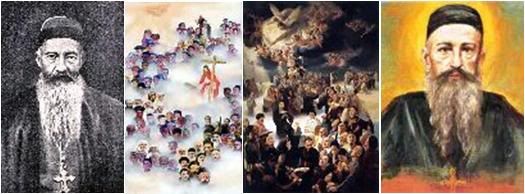 ST. GREGORIO MARIA GRASSI and COMPANIONS (d. 1900, China), Martyrs
ST. GREGORIO MARIA GRASSI and COMPANIONS (d. 1900, China), Martyrs
About 25,000 Chinese Catholics and 43 European missionaries were martyred in the so-called Boxer Persecution of 1900.
The Boxers were a fanatical sect who hated all foreigners and especially the Catholic Church. With the approval of the
empress dowager Tzu Chi, then ruling the Chinese Empire, they went about burning churches and murdering missionaries and
their neophytes. Gregorio Maria Grassi, born in Italy in 1833, was a Franciscan missionary to China since 1856 and later
Bishop of North Shansi, he and 14 other European missionaries, along with 14 Chinese religious, were hacked
to death by the Boxers on July 1, 1900. That same week, three other Italian Franciscans were murdered in
the province of Hunan. The Boxer martyrs were beatified in 1946. On October 1, 2000, they, along with 88 others
martyred in China between 1648 and 1930, were canonized by John Paul II.
Readings for today's Mass:
http://www.usccb.org/bible/readings/070812.cfm
WITH THE POPE TODAY
Sunday Angelus - In his first summer Angelus at Castel Gandolfo this year, the Holy Father, looking
and sounding very well, said that "in today’s Gospel, Jesus reminds us that if we live with an open and
simple heart, nourished by true faith, we can recognize the presence of God in our lives and follow
his holy will". He is officially on vacation till the end of July.
|
| |
 08/07/2012 19:29 08/07/2012 19:29 |
|
| | | OFFLINE | | Post: 25.210
Post: 7.706 | Registrato il: 28/08/2005
Registrato il: 20/01/2009 | Administratore | Utente Master | |
|
 ANGELUS TODAY
ANGELUS TODAY
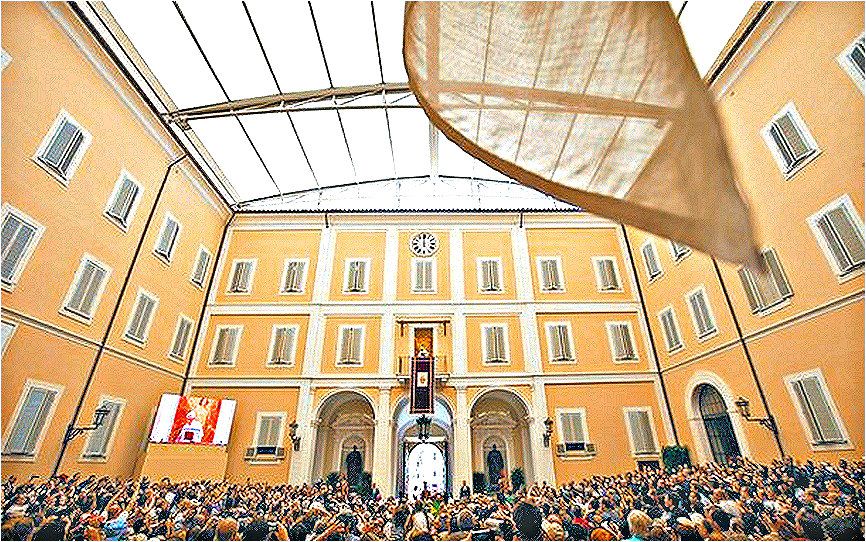
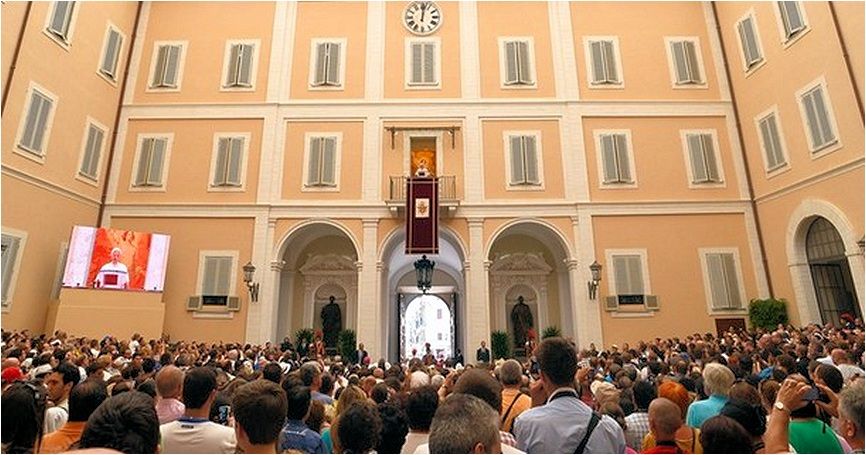
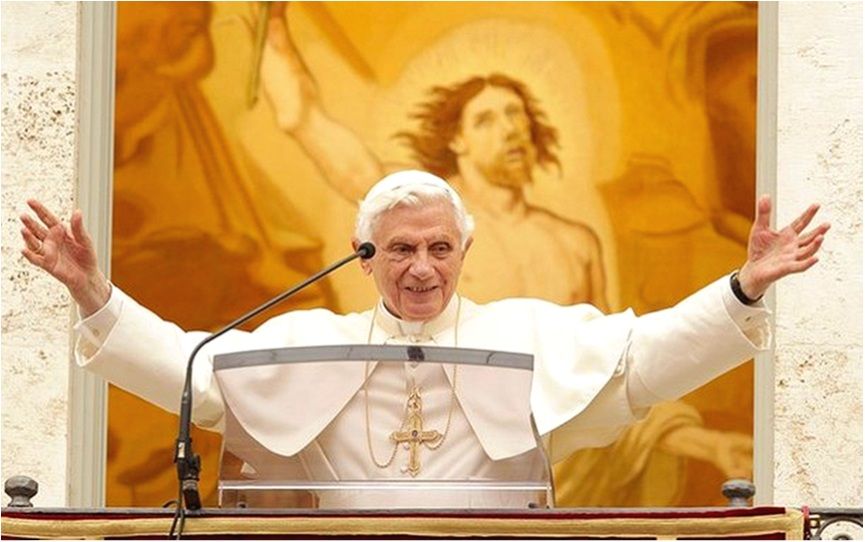 Jesus was 'the greatest miracle'
Jesus was 'the greatest miracle'
but Nazareth rejected him

July 8, 2012
Speaking from his summer residence at Castel Gandolfo, Pope Benedict XVI spoke about today's Gospel, which tells how Jesus, when He had returned to His hometown of Nazareth, was rejected by His own people.
“This fact is understandable,” the Pope said, “because familiarity at the human level makes it difficult to go beyond that and to be open to the divine dimension.”
Jesus was not able to work any miracles in Nazareth – “apart from curing a few sick people by laying His hands on them” – because the people were closed off to the spiritual dimension. The Holy Father explained that “the miracles of Christ are not a display of power, but signs of the love of God, which is made present where it encounters the faith of man.”
And so, the Pope says, Jesus was “amazed” at the lack of faith among his own people: “How is it possible that they do not recognise the light of Truth? Why are they not open to the goodness of God, who has willed to share our humanity?”
“In fact," the Pope points out, "the man Jesus of Nazareth is God made visible; in Him, God dwells fully. And while we too always seek other signs, other wonders, we do not realize that the He is the real sign, God made flesh; He is the greatest miracle of the universe: all the love of God hidden in a human heart, in a human face.”
In his English greeting after the prayers he said: "In today’s Gospel, Jesus reminds us that if we live with an open and simple heart, nourished by true faith, we can recognize the presence of God in our lives and follow his holy will.”
In Polish, he greeted an inter-religious prayer service to be held Sunday evening at the former Nazi concentration camp at Majdanek. Representatives of the Greek and Latin Catholic Church, from the Orthodox Church, from the Protestant ecclesial communities and from the Jewish community will offer prayers for peace throughout the world.
“I unite myself spiritually to these events,” the Pope said, “and I pray for goodness and peace for the world, for Poland, and for each of you.”
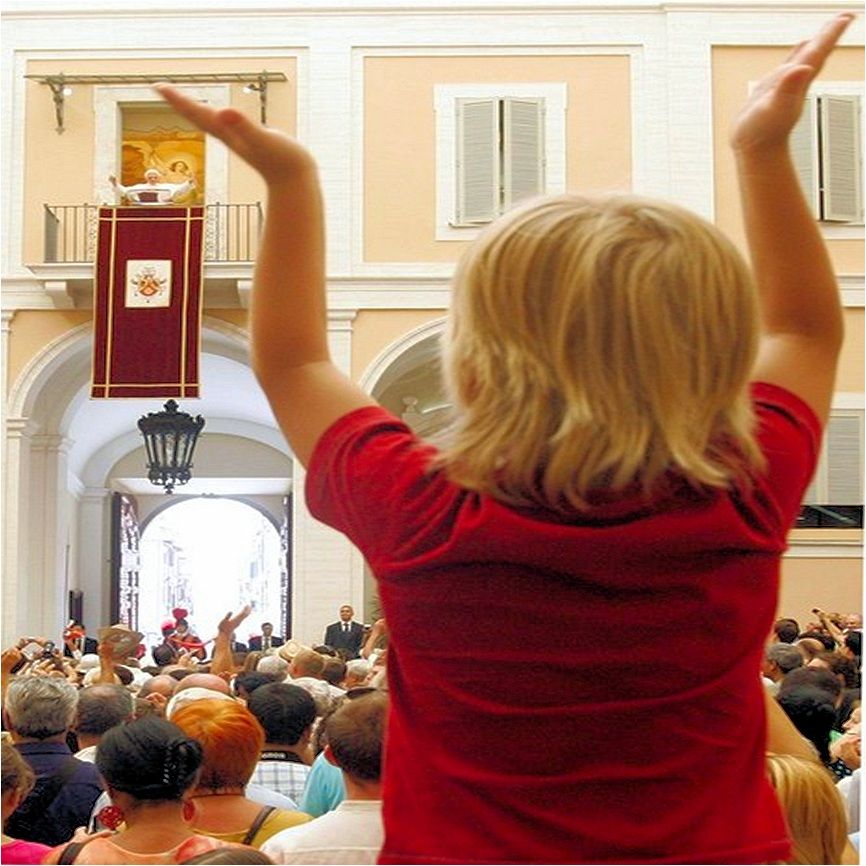
Here is a full translation of the Holy Father's words:
[Before he could start his pre-Angelus message this morning, the Holy Father graciously gave way to a choir from Germany which sang a celebratory hymn.]
Dear brothers and sisters,
Let us thank the children of Dresden who sang so well!
I wish to dwell briefly on the Gospel passage this Sunday, a text from which comes the famous saying "Nemo propheta in patria" - namely, no prophet is well-received among his own people, who have seen him grow up (cfr Mc 6,4).
Indeed, after Jesus, around age 30, had left Nazareth and had already been going around preaching and healing for some time, he came back to his hometown to preach in the synagogue. His townmates were 'astonished' at his wisdom, but knowing him as 'the son of Mary', the carpenter who had lived among them, instead of welcoming him with faith, they 'took offense' with him (cfr Mc 6,2-3).
This fact is understandable, because familiarity on the human level makes it difficult to go beyond and to be open to the divine dimension. That this carpenter could be the Son of God was difficult for them to believe.
Jesus himself cites the example of the experience of Israel's prophets who in their own country were the object of scorn, and he identified with them.
Because of this spiritual closedness of his own people, in Nazareth, Jesus was not able to perform any mighty deed there, apart from curing a few sick people by laying his hands on them" (Mk 6,5).
The miracles of Christ are not a display of power, but a sign of God's love, which happens wherever it encounters man's faith - it is a reciprocity. Origen writes: "In the same way that for bodies, there exists a natural attraction to others by some, like a magnet draws iron,... faith exercises an attraction on divine power" (Comment on the Gospel of Matthew 10,19).
Therefore, it would seems that Jesus took exception to the bad welcome that he got in Nazareth. But at the end of this account, we find an observation that says the contrary. The Evangelist writes, "He was amazed at their lack of faith" (Mk 6,6).
To the astonishment of his townmates, who were scandalized by him, Jesus responds with amazement. Even he, in a certain sense, is scandalized. Though he knew that no man is a prophet in his own land, still he found the closed hearts of his townmates obscure, impenetrable.
How is it possible that they cannot recognize the light of Truth? Why don't they open up to the goodness of God, who willed that he would share our humanity? Indeed, the man Jesus of Nazareth is God's transparency - in him God dwells fully.
Even as we - and even we - are always looking for other signs, other miracles, we do not recognize that the true sign is he, God made flesh - he is the greatest miracle in the universe. All the love of God, found in a human heart, in a human face.
She who truly understood this reality is the Virgin Mary, who is blessed because she believed (cfr Lk 1,46). Mary was not scandalized by her Son: her wonder at him was full of faith, full of love and joy, in seeing him so human and at the same time so divine.
Let us therefore learn from her, our Mother of faith, to recognize in the humanity of Christ the perfect revelation of God.
After the prayers, he said:
Dear brothers and sisters, I am glad to welcome you here to Castel Gandolfo, where I arrived a few days ago. I greet the local community and wish all families that they may have a time of rest and of physical and spiritual recharging.
And I affectionately greet the Sisters of St. Elizabeth, who have come from various parts of the world, to celebrate ten years of their perpetual vows. Dear sisters, may the Lord renew you profoundly in his love!
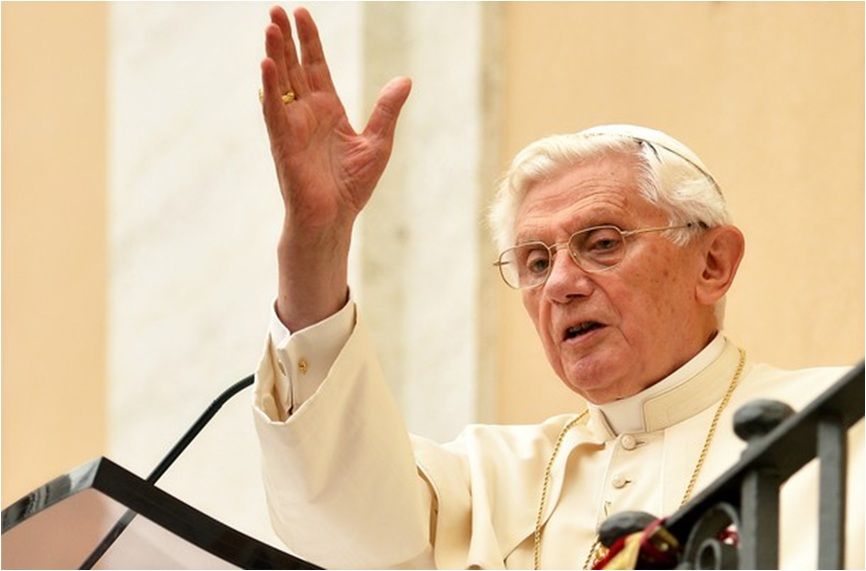
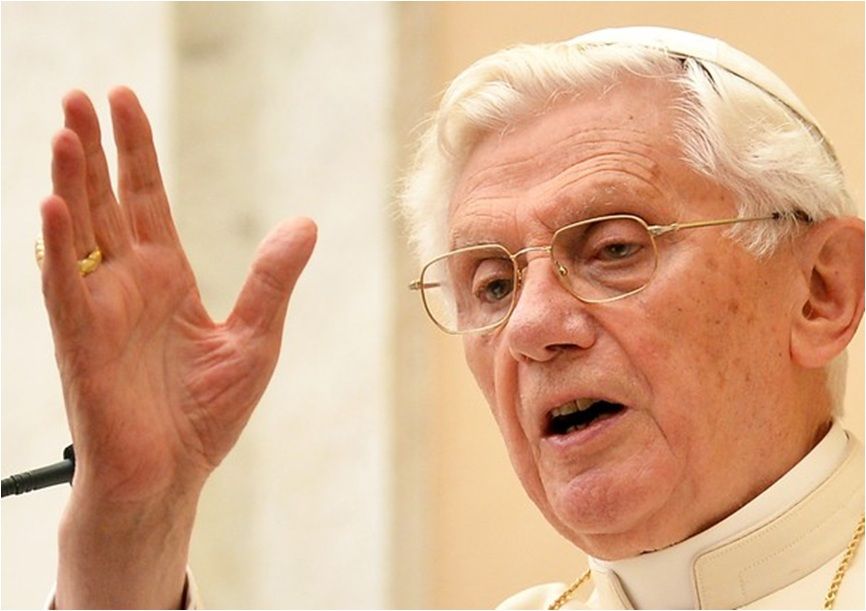
[Modificato da TERESA BENEDETTA 08/07/2012 22:17] |
| |
 08/07/2012 20:20 08/07/2012 20:20 |
|
| | | OFFLINE | | Post: 25.211
Post: 7.706 | Registrato il: 28/08/2005
Registrato il: 20/01/2009 | Administratore | Utente Master | |
|
 Summer, when the Pope's on vacation, is a good time to go down memory lane - an always engrossing excursion because it is teeming with a host of beautiful memories and tributes to Joseph Ratzinger/Benedict XVI that not all the malice of his detractors can dim or tarnish. In this particular case, I was wondering how the international media reported the appointment of Cardinal Ratzinger to be CDF Prefect back in 1981, and I came across the TIME article on the subject, which Sihaya at the PRF had unearthed some time in 2006 and which I subsequently posted in the English section. Unfortunately, the article did not have a byline, an when I checked the original link just now, the whole article is no longer available unless to subscribers. Anyway, here's a 30-year flashback:
Summer, when the Pope's on vacation, is a good time to go down memory lane - an always engrossing excursion because it is teeming with a host of beautiful memories and tributes to Joseph Ratzinger/Benedict XVI that not all the malice of his detractors can dim or tarnish. In this particular case, I was wondering how the international media reported the appointment of Cardinal Ratzinger to be CDF Prefect back in 1981, and I came across the TIME article on the subject, which Sihaya at the PRF had unearthed some time in 2006 and which I subsequently posted in the English section. Unfortunately, the article did not have a byline, an when I checked the original link just now, the whole article is no longer available unless to subscribers. Anyway, here's a 30-year flashback:
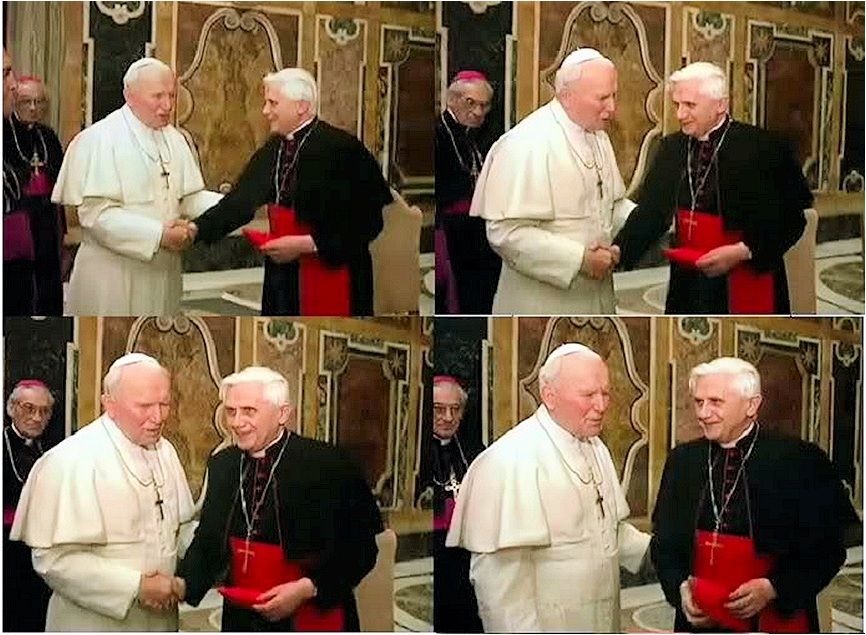
Hardening the Papal Lineup:
John Paul picks a German Cardinal
as his doctrinal watchdog
 December 14, 1981
December 14, 1981
Unlike Premiers or Presidents, new Popes put their top aides in place only gradually, as jobs open up. John Paul II's first major appointment, two years ago, was Papal Loyalist Agostino Cardinal Casaroli as Secretary of State. Other changes slowly followed, including the selection last September of U.S. Archbishop Paul Marcinkus as chief administrator of Vatican City [President of the Governatorate].
Now, at the start of John Paul's fourth year, his lineup is virtually complete. The Pope has just named West Germany's Joseph Cardinal Ratzinger, 54, to be his doctrinal watchdog as Prefect of the Congregation for the Doctrine of the Faith (formerly the Holy Office).
Ratzinger is the only internationally respected theologian in modern times to fill the post, and the Pope's second most important appointee is also perfectly attuned to John Paul's conservative views.
Ratzinger did not always see things that way. During the Second Vatican Council he was the most eloquent member of a troika of progessive German theological experts (with Karl Rahner and Hans Küng). In that era the reform-minded priest called the office he will now head "detrimental to the faith." [Because of the way it was run, not because of the office, per se, which Paul VI renamed and reorganized from 'Holy Office' to 'Congregation for the Doctrine of the Faith' in 1965, after Vatican II.]
By the 1970s, however, he gradually came to question the Church's leftward drift. He warned against accepting "tenets merely because they happen to be fashionable at the moment."
In 1975 he called the previous decade "a period of ecclesiastical decadence in which the people who had started it later on became incapable of stopping the avalanche." [And wasn't he ever so right!]
After Ratzinger was appointed Archbishop of Munich in 1977, he barred Liberation Theologian Johann Baptist Metz from a professorship and engineered the Vatican crackdown on his former colleague Küng. [Isn't that attributing unlikely power to a junior cardinal who had been less than two years cardinal and was not even in the Curia at the time Kueng was first disciplined by the pre-Ratzinger CDF?]
Ratzinger's shift prompted charges of opportunism; students broke up one of his campus appearances last year with booing and jeering chants.
No one has ever questioned his intelligence, though. As a Wunderkind theology professor, he raced through appointments at five German universities and at 42 became deputy president of Regensburg university.
He is abstemious, hardworking, and as archbishop has earned a reputation for aloofness from his people [Ratzi aloof????] but persuasiveness in his oratory. In 1980 the Pope assigned him to prepare the major reports for the International Synod of Bishops.
The Pope's desire to end the Church's period of doctrinal uncertainty means that the new prefect can expect some renewed booing and a lot more conflict.
One sure focus for trouble is Dominican Father Edward Schillebeeckx, a Dutch scholar who has frequently questioned Vatican views. In a new book, Ministry, published last April in English (Crossroad; $12.95), Schillebeeckx focused his critical attention on the clergy. Pointing to the church's manpower shortage, he argues that the "right" of Catholics to have priests means that some rules must be reexamined, notably those which ban women, non-celibates and even lay people from performing priestly duties.
The Vatican is not receptive to such proposals, and last spring the doctrinal office quietly questioned Dominican headquarters in Rome about the book. The order is planning a formal "discussion" of Schillebeeckx's proposals. The bureaucratic maneuvering will go on for some time, but Ratzinger is likely to press hard for Schillebeeckx to be either less contentious or just plain quiet.
The Pontiff clearly wants that sort of decisive action. Religious orders like the Dominicans have long been free of control by bishops and tend to be loosely disciplined, but John Paul is now signaling that if they do not police their own ranks, he intends to do it.
In October he suspended the normal rules and installed two men of his own choosing as interim leaders of the Jesuits, an order which has been troubled by social and theological liberalism in recent years. Last week the new leaders ordered the 83 regional Jesuit executives to Rome next February. The purpose, says one Jesuit, is to get them "to think with the Pope."
John Paul, adds one unhappy Vatican observer, "really wants to see a kind of highly organized church with the Pope at the top, bishops underneath and clergy underneath them - all tidy-like." With Joseph Ratzinger, the Pontiff now has just the team to tend to the tidying up.
Search engines are maddening because even if you specify '1981 news reports - cardinal ratzinger named to cdf' - all you get are references to his appointment in 1981, meaning reams of links to every papal biography or article giving any background at all about Benedict XVI, or about the appointments of Cardinal Levada or Mons. Mueller, but no news reports from 1981. The only item that managed to slip in in the first dozen pages was this thing from the archives of the Catholic Herald.
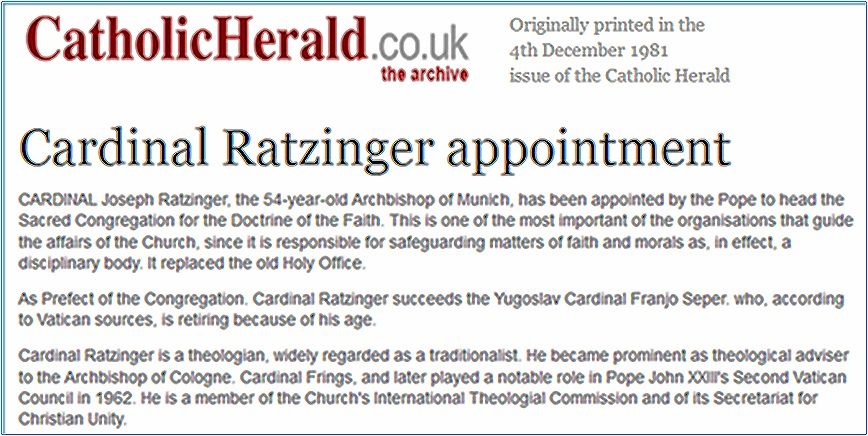
[Modificato da TERESA BENEDETTA 08/07/2012 22:41] |
| |
 09/07/2012 12:20 09/07/2012 12:20 |
|
| | | OFFLINE | | Post: 25.212
Post: 7.708 | Registrato il: 28/08/2005
Registrato il: 20/01/2009 | Administratore | Utente Master | |
|
 Monday, July 9, 14th Week in Ordinary Time
Monday, July 9, 14th Week in Ordinary Time
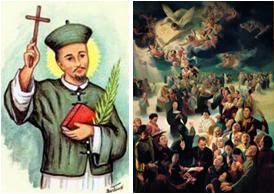 ST. AUGUSTINE ZHAO RONG & COMPANIONS (d China 1815), Martyrs
ST. AUGUSTINE ZHAO RONG & COMPANIONS (d China 1815), Martyrs
Augustine was a Chinese soldier who was part of the escort bringing the French-
born bishop Gabriel Dufresse of Chengdu to Beijing where he was condemned
and executed in the early 19th-century persecutions under Emperor Kia-Kin.
Impressed by the martyred bishop's faith, Augustine became a Catholic
himself, entered a seminary, was subsequently arrested, tortured and put
to death in 1815. He was among 122 Chinese martyrs of the faith put to death
between 1638-1930 who were beatified at different times but canonized together
on October 1, 2000.
Readings for today's Mass:
www.usccb.org/bible/readings/070912.cfm
WITH THE POPE TODAY
No bulletins from the Vatican so far, but today, the Holy Father was to make a private visit to the motherhouse
of the Society for the Divine Word (SVD) in Nemi, near Castel Gandolfo, where in 1965, as a theological consultant
to Vatican-II, he was part of a work group of Council Fathers (bishops) that spent a few days at the SVD center
to work on the text for what eventually became the Vatican-II declaration on the Church's missionary work in
the modern world, Ad Gentes.
[Modificato da TERESA BENEDETTA 10/07/2012 18:11] |
| |
 09/07/2012 14:06 09/07/2012 14:06 |
|
| | | OFFLINE | | Post: 25.213
Post: 7.709 | Registrato il: 28/08/2005
Registrato il: 20/01/2009 | Administratore | Utente Master | |
|
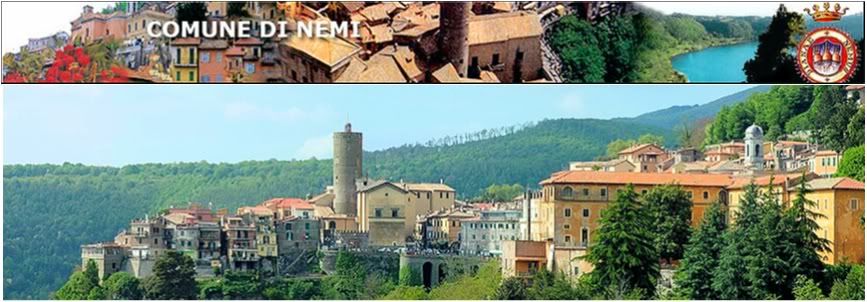
 Joseph Ratzinger revisits
Joseph Ratzinger revisits
a place associated with
his work in Vatican-II
by Alessandro Speciale
Translated from the Italian service of

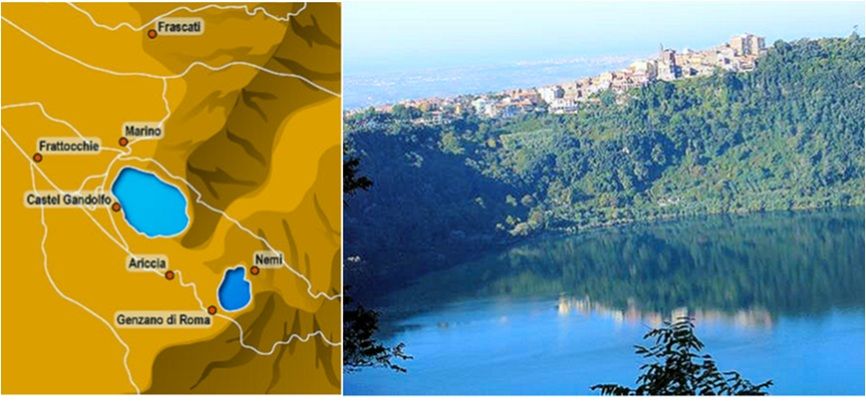
VATICAN CITY - Pope Benedict XVI is visiting the international house of the Society for the Divine Word (SVD)in Nemi today, a town not far from Castel Gandolfo, which like is, is also perched above a lake in the Alban Hills south of Rome.
Since 2010, the SVD has named its meeting and retreat center in Nemi Centro Ad Gentes. Not by chance.
The center, in 1965, hosted the Vatican-II Commission on Missions which was drafting the Council decree on missions, Ad Gentes. Working with the Commission were theological consultants including Fr. Joseph Ratzinger, then 38, who returns today as Pope.
The decree Ad Gentes – ass SVD Fr. Stephen Bevans writes in a 2009 book Evangelization and Religious Freedom - had an 'unusually turbulent' genesis. A first version, presented to the Council at the end of 1964 and supported by Paul VI, was retracted without being brought to a vote because of opposition, such as that expressed by Fr. Ratzinger at the time.
The then Superior-General of the SVD (an missionary order generally referred to as the Verbites), Fr. Johannes Schütte, was charged with forming a commission to draft a new proposal restating the missionary task of the Church, incorporating suggestions presented by the Council Fathers. Among the experts named to work with the commission were the French Dominican theologian Yves Congar and Joseph Ratzinger.
The commission first met in Nemi in January 1965, at which preliminary meeting Fr. Ratzinger was not present. He participated in the plenary session from March 29 to April 3, when the final draft of the decree Ad Gentes was drawn up.
When Fr. Schütte presented the draft decree to the plenary of the Council in December 1965, it was approved with 2394 votes for and only 5 against/ (This was the best voting record for any of the 16 Council documents).
The SVD center was renovated in 2010, at which time the Verbites invited the Pope to revisit them. They renewed the invitation this year on the occasion of the order's chapter-general. In the words of the SVD procurator-general, "to remember and celebrate the work" of the bishops and consultants who had prepared the decree "on retreat in this center".
In his June 9 letter to the Pope, Fr. Girardi wrote, "We would be very grateful if the Pope could;d come and bless the Center, while at the same time, the participants in the Chapter-General will have the joy of meeting the Holy Father and share some moments of filial veneration and new impetus to continue our missionary service in various local churches around the world where we are present".
Welcoming him to the center will be the newly-elected Superior General, German Fr. Heinz Kulüke. The SVD, founded in 1895 by ....
currently has more than 6,000 priests around the world. [In my childhood, our parish priest was a Belgian SVD who was also the chaplain of the Catholic school I attended. The Philippines has one of the largest SVD presences in the world, with three SVD seminaries. I've always always found it a bit strange that the Philippines has been considered missionary country all along - perhaps because we are a Third World country - even if we were Christianized in the 16th century and more than 80% of the population is Roman Catholic.]
The following is abridged from the original because I have omitted material already said in the preceding article....
That spring of 1965 -
and Congar's diary notes
by Gianni Valente
Adapted and translated from the Italian service of

"What a place! Everything is very fine: marble and decorative wood...", Dominican Fr. Yves Congar wrote about the SVD center in his Vatican-II diary published posthumously only a few years ago.
The excellent hospitality offered by the SVD when Congar was part of the Vatican II commission which met in Nemi twice to draft the conciliar decree Ad Gentes was noted with ascetic embarrassment by Congar: "A table that is a bit too abundant. Not just that there isn't anything Lenten about it [the second session took place during Lent], but there was a true excess of everything. In the evenings, meals were taken with wine. Obviously, this all helps create an atmosphere of cordiality, and that is why Fr. Schütte does it, but at what expense!"
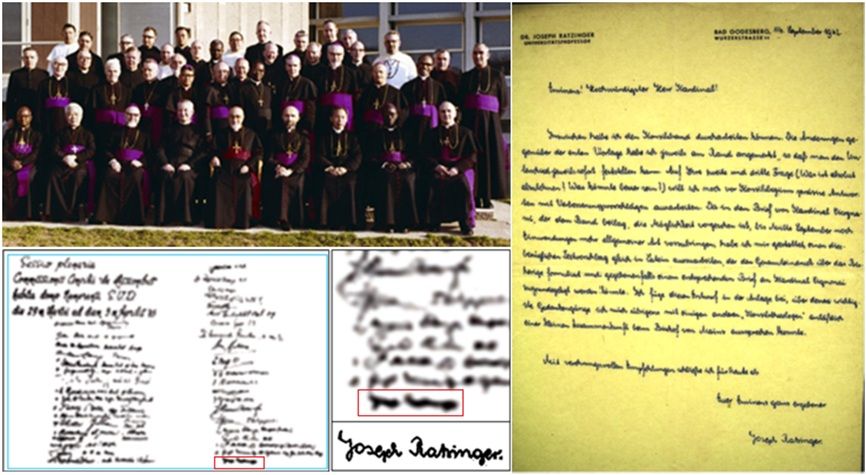 The OR published the group photo of the Ad Gentes commission seen above, with the signatures of the participants on the Center's register, which unfortunately does not reproduce very well. Joseph Ratzinger's is the last signature, and since it does not enlarge well at all, I used a similar signature from a 1962 document for comparison (a letter written in September 1962 by Fr. Ratzinger to Cardinal Frings reporting on what he had done by way of preimianry work for their pwrticipation in Vatican-II*.
The OR published the group photo of the Ad Gentes commission seen above, with the signatures of the participants on the Center's register, which unfortunately does not reproduce very well. Joseph Ratzinger's is the last signature, and since it does not enlarge well at all, I used a similar signature from a 1962 document for comparison (a letter written in September 1962 by Fr. Ratzinger to Cardinal Frings reporting on what he had done by way of preimianry work for their pwrticipation in Vatican-II*.
The Pope's visit will doubtless bring back memories of the brainstorming sessions on the great themes concerning the life of the Church in which he took part as a theological consultant during the years 1962-1965. [He first came to Vatican II as a consultant for the Archbishop of Cologne, Josef Frings, who immediately got him appointed as an official theological expert (peritus) for the Council itself.]
Cardinal Frings, with arguments put together by Fr. Ratzinger, had been one of the leaders in the successful move to withdraw the draft decree on missions prepared by the Vatican-II Preparatory Commission.
Although Fr. Ratzinger was not present at the first meeting of the commission on the missions decree in Nemi, an important text in the working agenda was his paper on the theological foundation of Church missions, «Considerationes quoad fundamentum theologicum missionis Ecclesiae»".
The Latin paper, recently published in the magazine of the Vatican-II study center of the Pontifical Lateran University, is dedicated to the doctrinal principles of mission, and offers relevant points of reflection even today, in view of the coming Synodal Assembly on the New Evangelization and the Year of Faith.
In 1965, Fr. Ratzinger wrote authoritatively that mission "is not a battle to capture other people in order to incorporate them into our own group". He sees mission not as self-actuated by the Church, but that Christ himself through the Church, draws to him and the Father the hearts of men. "No human or religious effort in themselves can save men - all salvation comes from Christ".
The work session in Nemi confirmed the affinity and similar outlook between the Bavarian priest and the French theologian Congar, twenty years his senior. They both rejected the narrow idea of mission which was limited to the traditional idea of bringing the Gospel to pagans. They thought that this reduced everything to technical and jurisdictional problems regarding the formation of new dioceses in mission lands.
The two theologians believed in a unitary perception of mission and its theological sources and then applying it to concrete contexts and circumstances.
Congar, in his Council diary, famously gave way to his feelings even about those with whom he worked (and whom he named openly). "Fr. X is truly an ass", or "Mons. Y says nothing and seems very bored", or "Mons. Z almost does not follow [the discussion] and is of no help at all".
He makes one exception: "Fortunately, there is Ratzinger. He is reasonable, modest, dispassionate, and very helpful", he says in his notes for March 31, 1965.
[My addendum: The second of the three great French theologians who served as periti at Vatican-II, Henri de Lubac, also made observations in his Vatican-II diaries about those he encountered. He said of Joseph Raztinger that 'his powerful intellect is matched by his peacefulness and affability', and of Hans Kueng, that he had 'juvenile audacity' and was 'incendiary, superficial and polemical' in his speech.
All three French periti were made cardinals eventually: Yves Congar (1904-1995) in 1994, Henri de Lubac, SJ (1896-1991) in 1983, and Jean Danielou, SJ (1905-1974) in 1969. Paul VI would also have made de Lubac cardinal in 1969 but he declined at the time because it was required then that a cardinal must be made bishop first. John Paul II waived the requirement for him in 1983. The only other Vatican II peritus to be made cardinal was Joseph Ratzinger in 1977, whom Paul VI elevated at age 50 because of his theological work, well before his mentors De Lubac and Congar. The three French theologians were recognized but at a much older age. I checked and saw that Cardinals Walter Kasper and Kurt Lehmann were both made cardinals in 2001, at age 68 and 65, respectively, but although both are theologians, they became cardinals by virtue of their positions - Kasper as President of the Pontifical Council for Promoting Christian Unity, Lehmann as chairman of the German bishops' conference.]
Apropos, the following constitute all the other photos I can find of Fr. Ratzinger at Vatican-II - and would be most happy if anyone out there could contribute more:
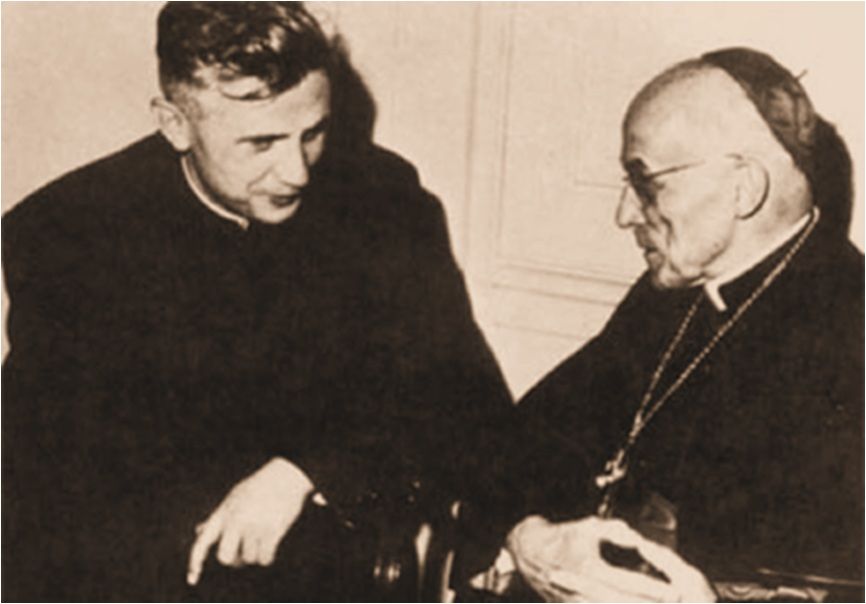
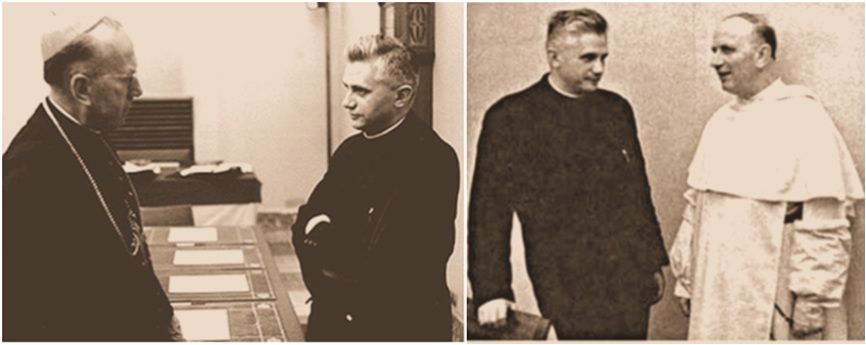 Top photo and left, bottom photo, with Cardinal Frings; right, with Yves Congar.
Top photo and left, bottom photo, with Cardinal Frings; right, with Yves Congar.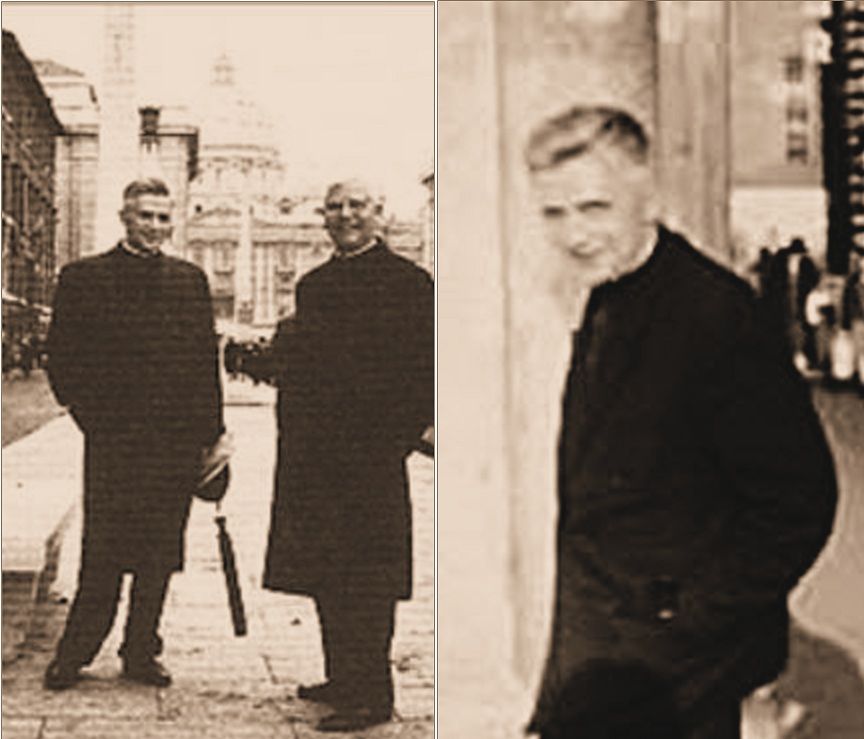
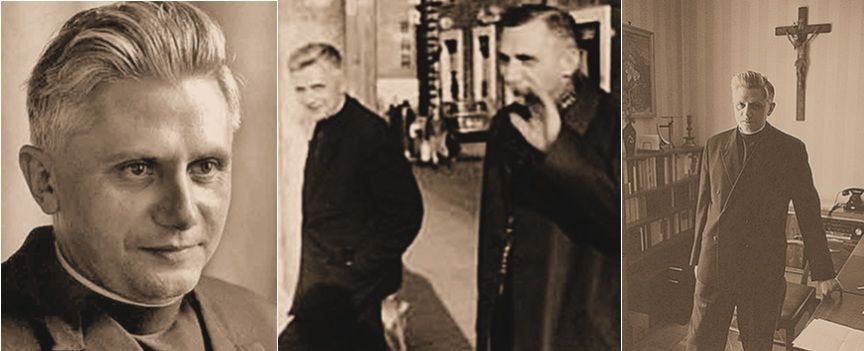 The dates of the pictures are uncertain. The photo at extreme left, bottom, is from 1964 (taken from MILESTONES). The one with his brother Georg (center) is supposedly from 1965, and bottom right is from the time period but probably taken in Germany.
The dates of the pictures are uncertain. The photo at extreme left, bottom, is from 1964 (taken from MILESTONES). The one with his brother Georg (center) is supposedly from 1965, and bottom right is from the time period but probably taken in Germany.
* The 1962 letter comes from photos taken by Simone at the PRF of the travelling exhibit on Benedict XVI organized by the Archdiocese of Cologne in 2007. I translated the letter in the full post with Simone's photos which can be found on
freeforumzone.leonardo.it/discussione.aspx?idd=354506&p=49
[Modificato da TERESA BENEDETTA 10/07/2012 17:57] |
| |
 09/07/2012 15:55 09/07/2012 15:55 |
|
| | | OFFLINE | | Post: 25.214
Post: 7.710 | Registrato il: 28/08/2005
Registrato il: 20/01/2009 | Administratore | Utente Master | |
|

 Benedict XVI in Nemi:
Benedict XVI in Nemi:
'My most beautiful memory of Vatican-II'
Translated from

July 9, 2012
At 11:30 this morning, the Holy Fathr Benedict XVI left the Pontifical Villas in Castel Gandolfo by car to visit the Centro Ad Gentes of the Divine Word missionaries in nearby Nemi.
The place, then called the International Center of the Society for the Divine Word (SVD), hosted the work of the Vatican-II Commission on Mission in 1965, in which then Fr. Joseph Ratzinger took part as a theological consultant to the Council.

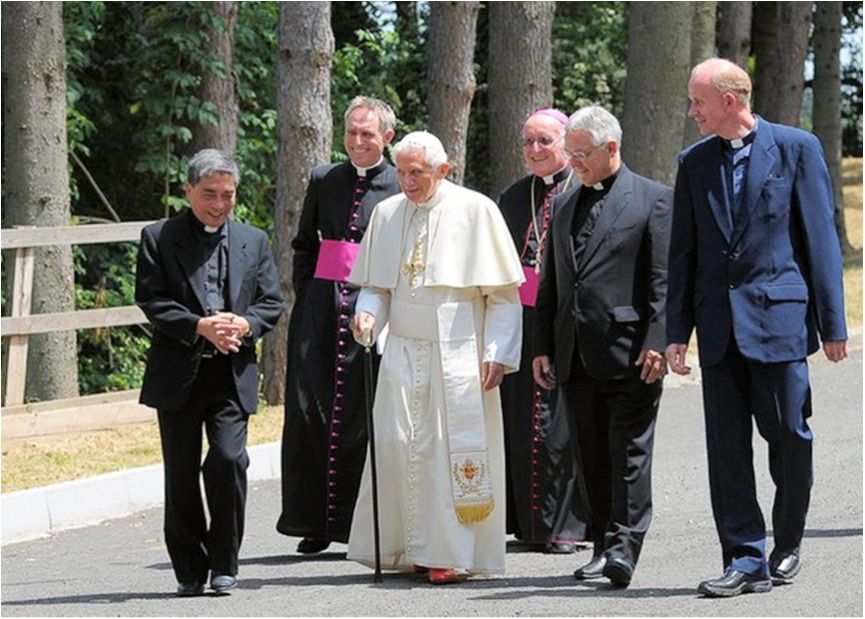
The Pope was greeted in Nemi by the newly-elected SVD Superior-General Fr. Heinz Kulüke, the outgoing Superior General Fr. Antonio Pernia, and the Procurator-General, Fr. Giancarlo Girardi.
At the main chapel of the Center, the Holy Father was welcomed by 150 participants in the order's annual General Chapter meeting and by the community of the diocesan Curia of Rome.
After adoration of the Blessed Sacrament, Fr. Kulüke formally welcomed the Holy Father, who went on to deliver brief remarks extemporaneously.
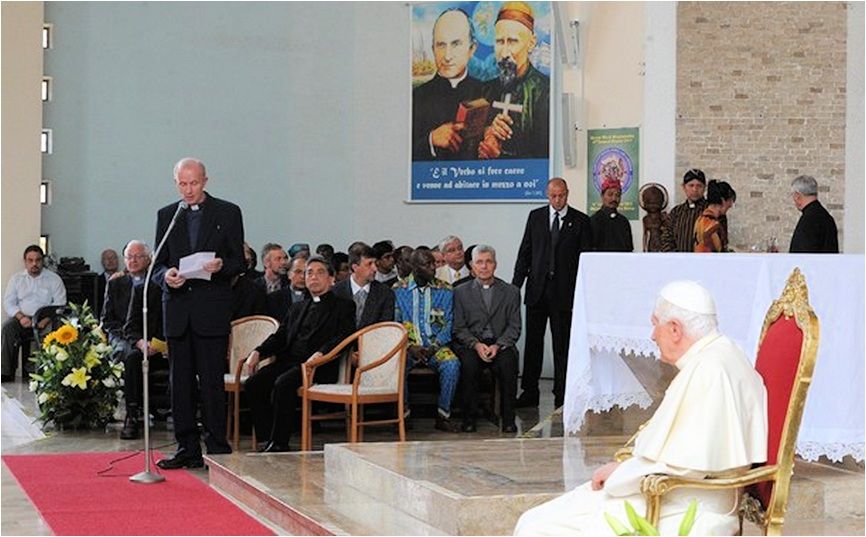
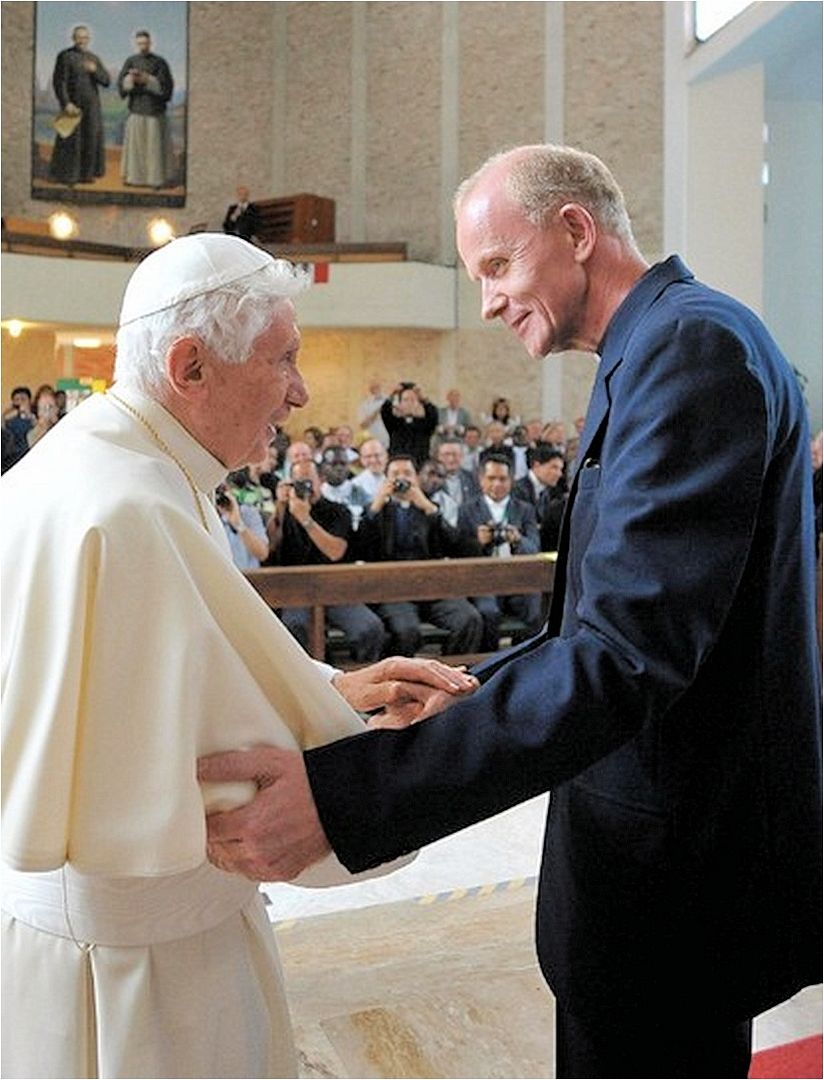
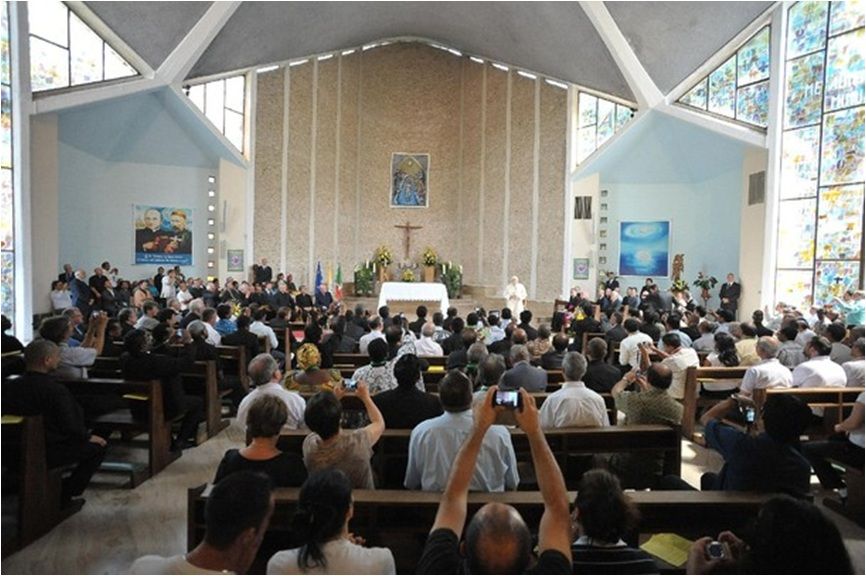 Here is a translation of the Holy Father's remarks:
Here is a translation of the Holy Father's remarks:
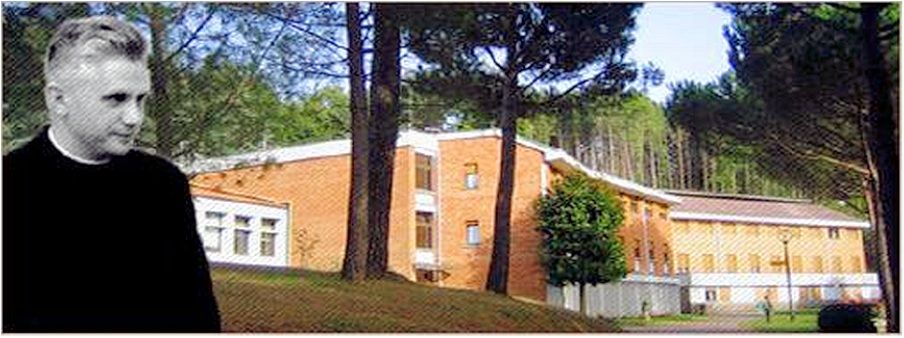 I am truly grateful for the chance to revisit, after 47 years, this center in Nemi, of which I have the most beautiful memories, perhaps the most beautiful of Vatican-II.
I am truly grateful for the chance to revisit, after 47 years, this center in Nemi, of which I have the most beautiful memories, perhaps the most beautiful of Vatican-II.
[At the time], I lived in the center of Rome, in the Collegio di Santa Maria dell’Anima, with all the noises of the city. That, too, was beautiful. But to be here, amid greenery, to have this breath of Nature and the freshness of the air, is in itself beautiful.
And then, there was the company of so many great theologians, with an assignment as important and beautiful as to prepare the Council decree on mission.
I remember, first of all, the Superior-General at the time, Fr. Schütte, who had suffered in China, was sentenced and then expelled. He was full of missionary dynamism, of the need do to give a new thrust to the missionary spirit.
And there was me, a theologian of no importance, rather young, who had been invited to take part for some reason. But it was a great gift for me.
There was Fulton Sheen, who fascinated us in the evenings with his discourses; and Father Congar and the great missiologists from Louvain. It was truly an experience of spiritual enrichment for me, a great gift.
The decree that we worked on did not involve great controversies. But there was one that I did not really understand, between the school of Louvain and the shcool of Muenster: What was the principal objective of mission? Was it implantatio Ecclesiae or announcing the Gospel?
But everything converged into one dynamic: the need to bring forth the light of the Word of God, the light of God's love, to the world, and to give the world new joy by this announcement.
Thus was born in those days a good and beautiful decree, which was accepted almost unanimmously by the Council Fathers, and which I also consider a very good complement to Lumen gentium, because it expresses a Trinitarian ecclesiology, which starts off from the classic idea of bonum diffusivum sui - goodness has the inherent necessity to communicate itself, to give itself.
It cannot remain by itself - goodness is essentially communication. And this we already see in the Trinitarian mystery, within God himself, which is disseminated in the story of salvation and our need to give to others any goodness we have received.
It is with these memories that I think of those days in Nemi which are, for me, an essential part of my Council experience.
I am happy to see that your society is flourishing - the Father General spoke of more than 6.000 members in so many countries. Clearly, missionary dynamism is alive, and it lives as long as there is joy in the Gospel, if we stay with the experience of goodness that comes from God, which should be communicated and wants to be communicated. Thank you for this dynamism.
I wish every blessing and great inspiration from the Lord for your Chapter meeting. May the same inspiring powers of the Holy Spirit which was with us almost visibly in those days [of the Council] be present anew among you and help pave the way forward for your society as well as for the mission ad gentes in the coming years.
I thnak you all. God bless you. Pray for me, as I pray for you. Thank you.
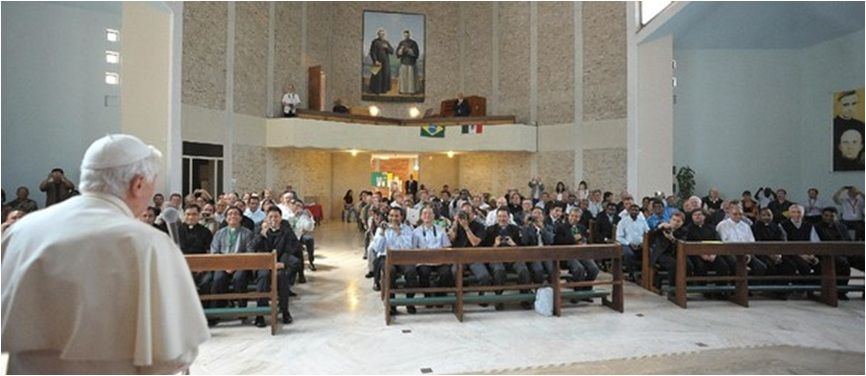
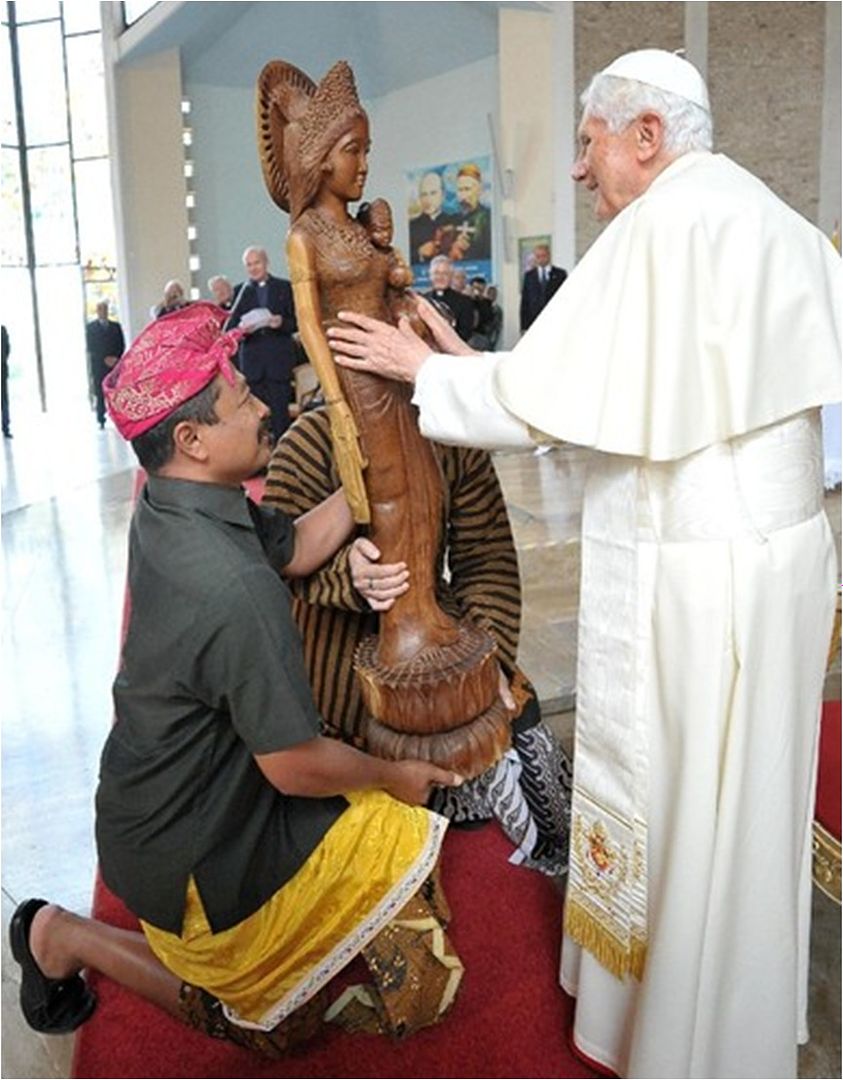 The Holy Father receives a carved wooden image of a Balinese Madonna from an Indonesian artisan. The SVD has a large community of missionaries in that country, which has the world's largest Muslim national population.
The Holy Father receives a carved wooden image of a Balinese Madonna from an Indonesian artisan. The SVD has a large community of missionaries in that country, which has the world's largest Muslim national population.
 Right, the SVD fathers show the Pope some of the photo albums and the guest register from the 1965 work session he attended. (B/W photos from tomorrow's OR).
Right, the SVD fathers show the Pope some of the photo albums and the guest register from the 1965 work session he attended. (B/W photos from tomorrow's OR).
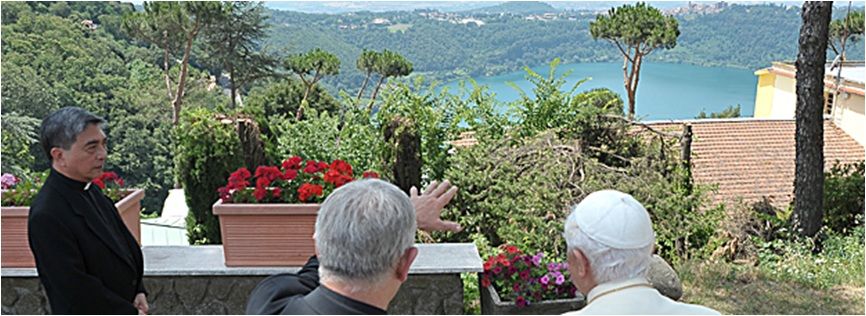 With an original photo, VATICAN INSIDER was able to do a much better blow-up from the 1965 group photo than I could from the OR photolift - too bad their photo editor appears not to have recognized the Venerable Fulton Sheen (foreground) and cropped his face in half:
With an original photo, VATICAN INSIDER was able to do a much better blow-up from the 1965 group photo than I could from the OR photolift - too bad their photo editor appears not to have recognized the Venerable Fulton Sheen (foreground) and cropped his face in half:
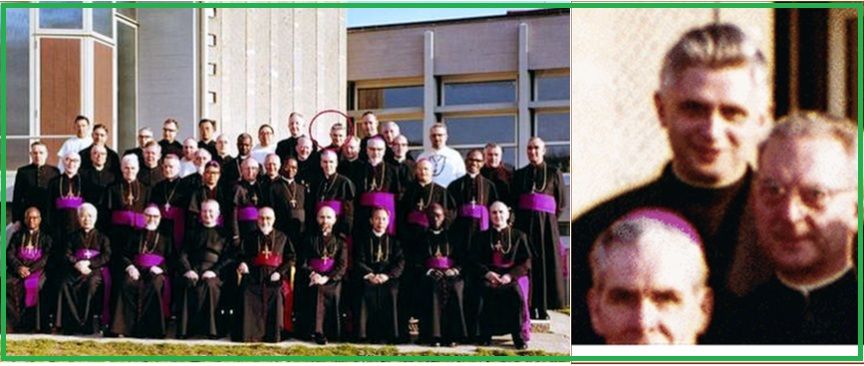 The only cardinal in the group is the commission chairman, Armenian Cardinal Gregory Agagianian (1895-1971), who was Prefect of the Congregation for the Evangelization of Peoples at the time (he had turned out to be the closest competitor to Angelo Roncalli in the 1958 Conclave). Fr. Congar is one of the four Dominicans in the photo - I think, fourth from left in the third row.
The only cardinal in the group is the commission chairman, Armenian Cardinal Gregory Agagianian (1895-1971), who was Prefect of the Congregation for the Evangelization of Peoples at the time (he had turned out to be the closest competitor to Angelo Roncalli in the 1958 Conclave). Fr. Congar is one of the four Dominicans in the photo - I think, fourth from left in the third row.
[Modificato da TERESA BENEDETTA 14/07/2012 05:38] |
| |
 10/07/2012 04:58 10/07/2012 04:58 |
|
| | | OFFLINE | | Post: 25.215
Post: 7.711 | Registrato il: 28/08/2005
Registrato il: 20/01/2009 | Administratore | Utente Master | |
|
 China cracks down on Shanghai's
China cracks down on Shanghai's
new auxiliary bishop for saying
he will no longer work for the PA
by Gerard O'Connell

July 9, 2012
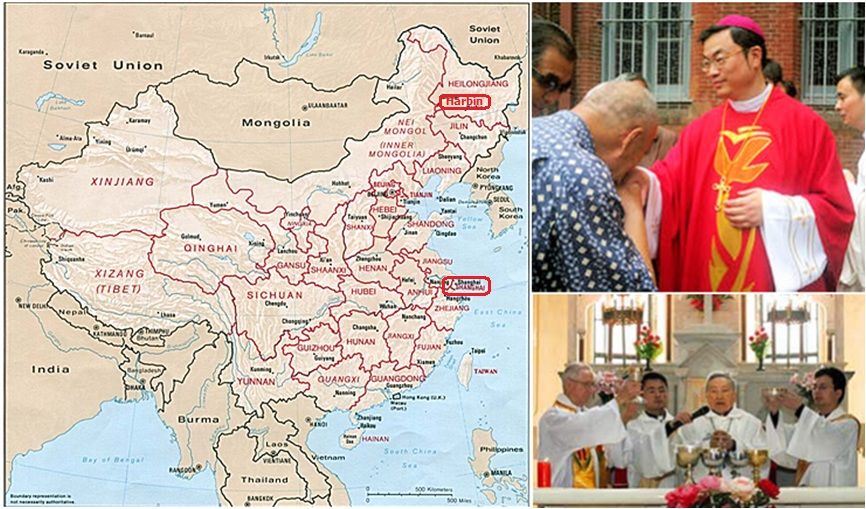 Map shows location of Shanghai, and of Harbin in northeast China, where an illegal episcopal ordination took place July 6. Left panel, top photo: Bishop Ma after his Vatican-approved consecration on July 7; bottom photo, Shanghai's government-appointed bishop, Mons. Aloysius Jin, 96, who was legitimized by the Vatican several years ago, presided at the ordination.
Map shows location of Shanghai, and of Harbin in northeast China, where an illegal episcopal ordination took place July 6. Left panel, top photo: Bishop Ma after his Vatican-approved consecration on July 7; bottom photo, Shanghai's government-appointed bishop, Mons. Aloysius Jin, 96, who was legitimized by the Vatican several years ago, presided at the ordination.
Chinese authorities have retaliated against and punished the new auxiliary bishop of Shanghai, Thaddeus Ma Daqin, hours after he declared publicly, during his ordination homily on Saturday, July 7, that he would no longer hold any position in the Chinese Catholic Patriotic Association (CCPA).
On Saturday afternoon, unidentified men came and took Bishop Ma away to an unknown destination, UCA News and other agencies reported. Asianews said the unidentified men were “religious officials.” On Saturday evening, the Hong Kong media reported that Bishop Ma was “missing”.
But the next day, Sunday, July 8, the bishop re-appeared in the seminary at Sheshan, on the outskirts of Shanghai, where he was said to be “resting”. The seminary is next to the famous Marian Shrine, but the priests there were reluctant to take any telephone calls that were not local, and a source said that policemen are stationed at the seminary.
“He has freedom of movement there but Chinese authorities have restricted him from exercising his Episcopal ministry”, UCA News reported. It is not clear however what kind of “freedom of movement” he actually has, or what are the restrictions placed on his ministry and for how long these will remain in force.
On Sunday evening, the priests and nuns of the Shanghai diocese received a text message said to be from Bishop Ma in which he told them that he felt “mentally and physically exhausted” after his ordination, UCA News reported.
“I need a break and have made a personal retreat. With the consent of Bishop Jin [Luxian], I am at the side of Our Lady of Sheshan,” the message said.
The 96-year old Jesuit Bishop Aloysius Jin Luxian, who heads the ‘open’ Church community in this megalopolis of 23 million people and is in communion with the Pope, was the main celebrant at Mons. Ma's consecration in Shanghai's St Ignatius Cathedral, at which five other bishops – four of them recognized by the Holy See - participated.
Bishop Jin was the first to lay hands on the man who is destined to succeed him. He was assisted by Bishop Joseph Xu Honggen (Suzhou) and Joseph Shen Bin (Haimen), who also laid hands on him.
Three other bishops were present at the ceremony - Joseph Cai Bingrui (Xiamen), John Baptist Li Suguang (Nanchang), and the illicitly ordained Vincent Zhan Silu (Mindong), but significantly they did not lay hands on Ma, UCA News reported.
This seems to have been the result of a compromise reached earlier, because before the event, many Catholics were concerned that Bishop Zhan would take part in the episcopal ordination. By not doing so, he avoided creating problems and embarrassment for the Catholic community.
UCA News also reported that most of the 86 priests of Shanghai’s “open’ Church community avoided being present at the celebration with the illicit bishop. Indeed, only 30 priests concelebrated the Mass and of these, only 12 were from the diocese. Bishop Ma referred to this in his speech when he said.
“Because of special reasons, many diocesan priests and nuns did not come here," the new bishop said in his homily. "I love you so much. You are my strength”.
The CCPA was created by the Beijing Government in the late 1950s to control the Catholic Church in the mainland, but Benedict XVI stated clearly in his 2007 letter to Catholics in China that this association is “incompatible” with Catholic doctrine.
At the time of his ordination, Ma was vice-Chairman of the Shanghai CCPA and a member of the national standing committee of the CCPA. At the ordination ceremony, however, he did what no other ‘open’ Church community bishop ever did before in China.
He told the congregation: “After today’s ordination, I will devote every effort to Episcopal ministry. It is inconvenient for me to serve the CCPA post anymore.”
The thousand or so Catholics present at the ceremony broke into long and thunderous applause at his announcement, but sources told UCA News that government officials present were most unhappy.
In their eyes, Ma is setting a dangerous precedent by distancing himself from the CCPA, a precedent others might follow, and one which could effectively undermine the association’s role and authority over the Catholic Church in the mainland.
These officials left the ceremony “looking very serious”, according to the sources. Breaking with tradition, they did not attend the official banquet for the new bishop - the three tables assigned to them were left empty. It was a warning that retaliation was on the horizon.
Bishop Ma was scheduled to celebrate Mass in the Cathedral on Sunday morning, July 8, but the Chinese authorities prevented from doing this. His absence caused considerable grief at the Sunday Mass. Father Joseph Gu Zhangjun presided at the Mass in his place but he was “visibly upset”, a source told UCA News. So too were the hundreds of Catholics who packed the Cathedral to attend the new bishop's first Mass after his consecration.
A Shanghai priest told the news agency that Bishop Ma is now having a rough time. “It is painful, but it is good for the conscience of the Church in China. His witness is an encouragement for our Catholics, so we can only pray for him”, he said.
Anthony Lam Sui-ki, senior researcher at Hong Kong diocese’s Holy Spirit Study Centre (the leading information centre on the Church in China, which is headed by Cardinal John Tong Hon), told UCA News that the ordination of a bishop is usually a joyous occasion in the Church, but the Chinese government had on this occasions openly assaulted the Church with “fierce and barbarous” acts. He condemned the Government’s interference in Bishop Ma’s civil rights to participate in religious activities.
Catholics across mainland China, who are aware of what happened in Shanghai, are praying for Bishop Ma today, the feast of the Chinese martyrs.
Vatican statement
on Harbin and Shanghai
episcopal ordinations

July 10, 2012
The Vatican today issued the following statement on the episcopal ordinations in Harbin and Shanghai:
With regard to the episcopal ordination of the Reverend Joseph Yue Fusheng, which took place in Harbin (Province of Heilongjiang) on Friday 6 July 2012, the following is stated:
1) The Reverend Joseph Yue Fusheng, ordained without pontifical mandate and hence illicitly, has automatically incurred the sanctions laid down by canon 1382 of the Code of Canon Law. Consequently, the Holy See does not recognize him as Bishop of the Apostolic Administration of Harbin, and he lacks the authority to govern the priests and the Catholic community in the Province of Heilongjiang.
The Reverend Yue Fusheng had been informed some time ago that he could not be approved by the Holy See as an episcopal candidate, and on several occasions he had been asked not to accept episcopal ordination without the pontifical mandate.
2) The Bishops who took part in the illicit episcopal ordination and have exposed themselves to the sanctions laid down by the law of the Church, must give an account to the Holy See of their participation in that religious ceremony.
3) Appreciation is due to those priests, consecrated persons and lay faithful who prayed and fasted for a change of heart in the Reverend Yue Fusheng, for the holiness of the Bishops, and for the unity of the Church in China, particularly in the Apostolic Administration of Harbin.
4) All Catholics in China, Pastors, priests, consecrated persons and lay faithful, are called to defend and safeguard that which pertains to the doctrine and tradition of the Church. Even amid the present difficulties, they look to the future with faith, comforted by the certainty that the Church is founded on the rock of Peter and his Successors.
5) The Apostolic See, trusting in the concrete willingness of the Government Authorities of China to dialogue with the Holy See, hopes that the said Authorities will not encourage gestures contrary to such dialogue.
Chinese Catholics also wish to see practical steps taken in this direction, the first among which is the avoidance of illicit celebrations and episcopal ordinations without pontifical mandate that cause division and bring suffering to the Catholic communities in China and the universal Church.
The ordination of the Reverend Thaddeus Ma Daqin as Auxiliary Bishop of the Diocese of Shanghai on Saturday 7 July 2012 is encouraging and is to be welcomed. The presence of a bishop who is not in communion with the Holy Father was inappropriate and shows a lack of consideration for a lawful episcopal ordination.

[Modificato da TERESA BENEDETTA 10/07/2012 19:18] |
| |
 10/07/2012 07:55 10/07/2012 07:55 |
|
| | | OFFLINE | | Post: 25.216
Post: 7.712 | Registrato il: 28/08/2005
Registrato il: 20/01/2009 | Administratore | Utente Master | |
|

 After the February symposium:
After the February symposium:
Some episcopal conferences still have
to submit their specific guidelines
for dealing with clergy abuse of minors
by Salvatore Izzo

VATICAN CITY, July 6 (Translated from AGI) - A demanding task faces the new prefect of the Congregation for the Doctrine of the Faith, Mons. Ludwig Gerhard Mueller, with regard to specific national guidelines prepared by local bishops to protect children and eliminate the scourge of abusive priests.
In fact, probably because of this, in part, there was a determined campaign in the traditional media and on the Internet to oppose his nomination on the ground that his theology is purportedly unorthodox.
Mons. Charles Scicluna, the CDF's promoter of justice (chief prosecutor of abuse cases) described what needs to be done in an interview with the magazine Jesus, recalling that at the international symposium on the problem held last February, the episcopal conferences were asked to submit their proposed guidelines by May according to the criteria proposed by the CDF and further refined at the symposium.
"A great part of the bishops' conferences have submitted their respective guidelines for the evaluation of the CDF. We are sending out reminders to those who have not yet submitted," Mons. Scicluna said. "These guidelines will be reviewed for concreteness, and suggestions will be made as needed for modification."
He said many of those who have not yet submitted their proposals are African nations "where there are great problems in ecclesiastical structure".
For the rest of the world, more than half have submitted - including the Italian bishops' conference.
Mons. Scicluna cited a possible instance when the CDF might propose a modification: "If the bishops' conference, in its description of relations with civilian authorities, will cite state law only to underscore the autonomy of the Church, it will be asked to provide a precise, careful and complete description of how state law deals with sexual crimes, and to specify that, in full respect of state law, the local Church will never act to dissuade victims for exercising their right to bring their complaint to civilian authorities. This is a commitment that must be explicit, so that the framework for dealing with the problem is complete".
"Bishops are single individuals, whereas the national conference is made up of diverse personalities," Scicluna noted. "But I was very encouraged by the bishops [or bishops' representatives] who attended the February symposium at the Gregorianum, who said the impact upon them of the various testimonials they heard was very powerful."
"It's not as if in a few weeks, one can accomplish a revolution in mentality," he noted. "It will require time, but under the humble and courageous leadership of the Holy Father, the right seeds have been planted. The faithful demand the vigilance of their pastors - this is a fight against sin and against crimes, to protect the innocence of children and young people, who are treasures for the Church".
Meanwhile, the papers and proceedings of the February symposium have now been published in Italian. The book is entitled as the symposium was, 'Towards Healing and Renewal'.
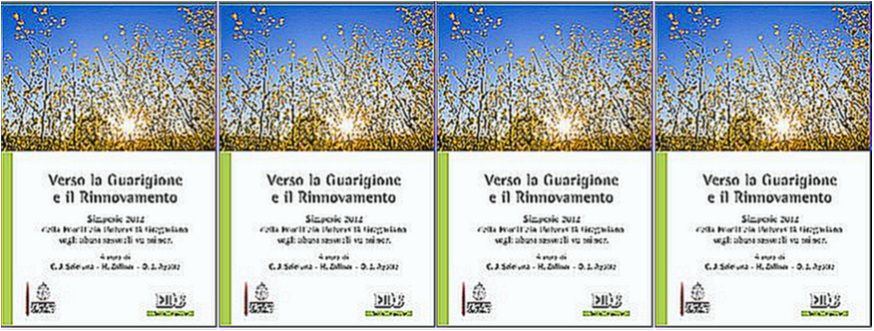
The book was edited by Mons. Scicluna, who obtained his doctorate in canon law and jurisprudence from the Gregorian University where he is also currently a visiting professor of penal processes; Fr. Hans Zoller, SJ, president of the Gregorian's Institute of Psychology, who is a theologian and psychotherapist; and Fr. David Ayotte, SJ, a priest from the archdiocese of Los Angeles, who has been teaching at the Gregorian since last year.
Father Zoller said this to Vatican Radio about the symposium and its follow-through:
The Symposium and the publication of these acts represent a small step in the long and painful process that the Holy Father has undertaken. Without him, we would not have held this symposium at all, and we would not have this movement in all parts of the Church to become very aware of the need for the Church to act with one voice and one will in this matter...
The strongest gestures have been the Holy Father's meetings with some victims and his Letter to the Catholics of Ireland - they represent a great and impressive effort to look at all the sins and crimes committed in the past by ministers of the Church, but even by their superiors who covered up for them and those who were in a state of denial.
The Pope has been the leading witness of the fact that there can be no moving ahead without trying to put things right: to do justice to the victims and to do everything we can to prevent any such abuses.
That is why, at the end of the symposium, we set up the Center for the Protection of Minors, which the Gregorian has based in Munich as a center for e-learning. We have since sent people to the primary dioceses of the primary nations collaborating with us, and they have brought back material from places like India and Indonesia, with lots of eye-opening information.
Although we must all be united in battling abuse of young people, we also have to take into account that different countries not only have different languages and sensibilities but the laws themselves regarding protection of children differ from country to country. So it is necessary to know all this in order to make the Church's response to the problem more affective everywhere.
 |
| |
 10/07/2012 15:05 10/07/2012 15:05 |
|
| | | OFFLINE | | Post: 25.217
Post: 7.713 | Registrato il: 28/08/2005
Registrato il: 20/01/2009 | Administratore | Utente Master | |
|
 Tuesday, July 10, 14th Week in Ordinary Time
Tuesday, July 10, 14th Week in Ordinary Time
 Fourth from left: The saint's incorrupt body.
ST VERONICA GIULIANI (Italy, 1660-1727), Poor Clare Nun, Mystic, Abbess
Fourth from left: The saint's incorrupt body.
ST VERONICA GIULIANI (Italy, 1660-1727), Poor Clare Nun, Mystic, Abbess
Benedict XVI dedicated his catechesis on Dec. 15, 2010, to this saint:
www.vatican.va/holy_father/benedict_xvi/audiences/2010/documents/hf_ben-xvi_aud_20101215...
Daughter of a wealthy Umbrian family, Ursula Giuliani grew up having divine visions starting at age 3 - they would continue throughout her life. Their dying mother dedicated each of her five daughters to the Wounds of Christ. Ursula joined the Poor Clares at age 17, taking the name Veronica to commemorate the Passion of Christ. She did menial jobs in the kitchen, infirmary and sacristy before she became portress. After 14 years, she was made mistress of novices. Three years later, at age 37, she received the stigmata - first the imprint of the Crown of Thorns on her forehead, and then the five wounds of the Crucifixion. For this, her bishop suspended her from duty and subjected her to the most rigorous of investigations to verify the authenticity of the wounds. Eventually, she was restored to her office, but she discouraged her own novices from getting 'caught up' in mysticism. When she was 56, she was made abbess against her wishes, but she proved to be a very practical and efficient administrator. She died on Good Friday at age 67. Canonized in 1839, her body has remained incorrupt and is enshrined in her monastery at Citta del Castello. Her confessor had ordered Veronica to keep a record of her spiritual life. She did so for 30 years, and her writings were eventually published as Tesoro Nascosto (Hidden Treasure) from 1825-1928, encompassing 14 volumes.
Readings for today's Mass:
www.usccb.org/bible/readings/071012.cfm
AT THE VATICAN TODAY
The Vatican Press Office issued a statement on the recent espiscopal ordinations in China - on July 6,
in Harbin, unauthorized and expressly prohibited by the Holy Father; on July 7, in Shanghai, authorized
by both the Holy See and the Chinese government. The statement did not comment on the apparent house
arrest of the new Shanghai auxiliary bishop, who announced at his ordination that he would no longer
serve in the Chinese Catholic Patriotic Association. (I posted this as a PS to the earlier post above on the Shanghai bishop.)
The Vatican also released the text of the holy Father's message of condolence for the death of
the emeritus Archbishop of Rio de Janeiro, Cardinal Eugenio de Araujo Sales, who was 91.
Photobucket is having one of those days when some images do not show. Since they gave a maintenance alert last week, it's been several days now of erratic service - most maddeningly, it takes forever to log in or to view an album, the bulk uploader does not work, simple uploads take a little less than forever, and an eternity to see what you have just uploaded (and you can't get the URL until you see the uploaded image).
[Modificato da TERESA BENEDETTA 10/07/2012 18:20] |
| |
 11/07/2012 17:47 11/07/2012 17:47 |
|
| | | OFFLINE | | Post: 25.218
Post: 7.714 | Registrato il: 28/08/2005
Registrato il: 20/01/2009 | Administratore | Utente Master | |
|
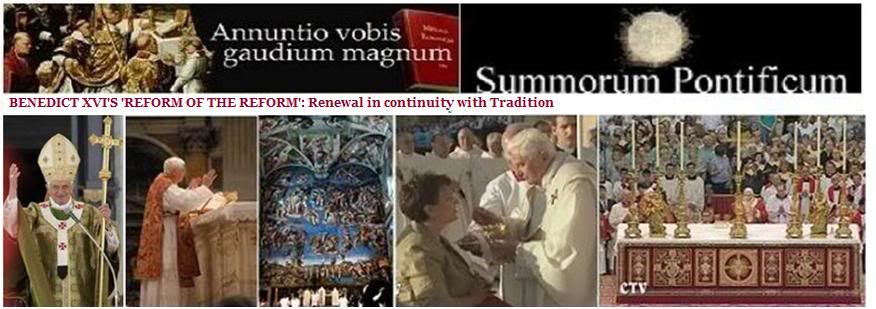 American Cardinal Raymond Leo Burke, Prefect of the Apostolic Segnatura (the Vatican's Supreme Court in canonical matters), was the keynote speaker at the Fifth Annual Liturgical Conference held in Fota island, Ireland, by liturgists who share Joseph Ratzinger-Benedict XVI's ideas on liturgy. The conference was held July 6-9 this year.
American Cardinal Raymond Leo Burke, Prefect of the Apostolic Segnatura (the Vatican's Supreme Court in canonical matters), was the keynote speaker at the Fifth Annual Liturgical Conference held in Fota island, Ireland, by liturgists who share Joseph Ratzinger-Benedict XVI's ideas on liturgy. The conference was held July 6-9 this year.
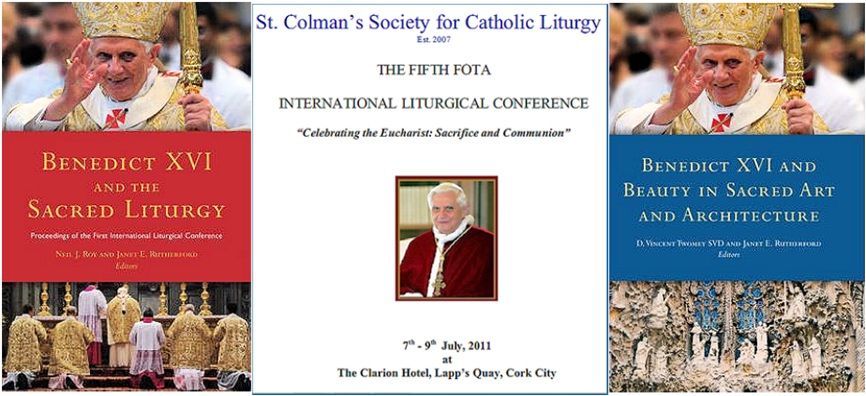 The four earlier Fota conferences produced two books reporucing the papers and discussions on various aspects of liturgy and sacred art and architecture.
Cardinal Burke speaks out on
The four earlier Fota conferences produced two books reporucing the papers and discussions on various aspects of liturgy and sacred art and architecture.
Cardinal Burke speaks out on
Vatileaks, liturgical liberties and
USCCB fight for religious freedom
By Sarah MacDonald

CORK, Ireland, July 9 (CNS) -- The head of the Vatican's highest court described the spate of leaks of confidential Vatican documents as "most grave crimes" and warned that those responsible must be discovered and "appropriately sanctioned."
Cardinal Raymond L. Burke, prefect of the Supreme Court of the Apostolic Signature, said the confidentiality of Pope Benedict XVI's privacy of communications must be respected so he can more effectively do his job.
"It is not a question of hiding anything but of respecting conscience," the U.S.-born cardinal told reporters following his address to the Fifth Fota International Liturgy Conference.
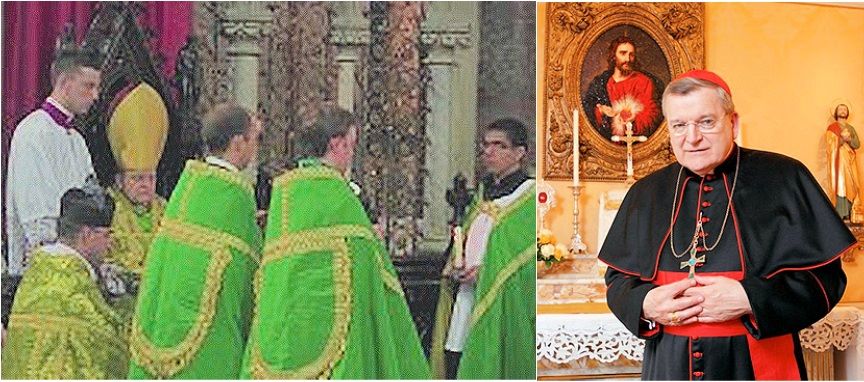
Left, Cardinal Burke also celebrated the closing Mass of the conference in the traditional form; right, the Cardinal after the Mass.
He added that he was appalled by what had happened in the events dubbed "VatiLeaks" by the Italian media.
"I am trusting and praying that these people will be discovered and they will be properly sanctioned," he said.
Speaking July 9, on the final day of the three-day conference focusing on the theme "Celebrating the Eucharist: Sacrifice and Communion," Cardinal Burke discussed 'the Eucharist as sacrifice in canonical history'.
The cardinal particularly mentioned Canon 818, which safeguards against a priest celebrating Mass and introducing his own wording, prayers or preaching according to his own judgment.
Asked about a priest in the Diocese of Belleville, Ill., who in June was removed as a pastor because he introduced new wording into the liturgy to make it "more meaningful," Cardinal Burke explained that any priest who took such liberties would have been warned by his bishop first. Only if the priest persisted, he explained, would sanctions be imposed.
"The priest is the servant of the rite. Christ has given us the sacred liturgy in his church and the priest serves. He is not the protagonist," Cardinal Burke said.
"It is absolutely wrong for the priest to start making changes to make it more interesting because he wants to make the liturgy better," he added.
Cardinal Burke also warned against excessive use of the concelebration of liturgy and called for the practice to be reviewed where it is used repeatedly. He told the conference that excessive use of concelebration could result in priests losing sight of the fullness of their office and an understanding of the Eucharist as a sacrifice.
After his presentation the cardinal spoke with Catholic News Service about the U.S. bishops' Fortnight for Freedom, commending the nationwide campaign to address what church officials consider government infringements on religious freedom.
Cardinal Burke criticized government actions and policies that, he said, were aimed at reducing freedom of conscience and the right to worship as one pleased.
"The thinking behind this is that religion has nothing to do with public life and that within your church or chapel you can worship as you please but that can't have anything to do with your public life," he said.
Cardinal Burke warned that such thinking was "absolutely contrary" to the Christian understanding of conscience. He stressed that sacred liturgy, which was the conference's focus, had a direct impact on forming Catholics' consciences and, as a consequence, had a direct impact on their public lives.
Commending the U.S. bishops for their stance on the federal contraceptive mandate under the health reform law recently upheld by the U.S. Supreme Court, the cardinal said he was "praying for them that they will be able to continue even in the face of persecution."
He said what the bishops were attempting to achieve was "needed to save (the U.S.) from a sort of totalitarianism in which the state dictates what people are to think and do."
[Modificato da TERESA BENEDETTA 11/07/2012 18:58] |
| |
 11/07/2012 17:48 11/07/2012 17:48 |
|
| | | OFFLINE | | Post: 25.219
Post: 7.715 | Registrato il: 28/08/2005
Registrato il: 20/01/2009 | Administratore | Utente Master | |
|
 There was only one other item in the news yesterday that I thought needed to be posted on the Forum, though it's a bad news/good news situation in which the bad-news part inherently dominates because it is unbelievably disgusting and vulgar - and I vacillated on whether to acknowledge it at all. The good news is that a Hamburg court issued an injunction against further distribution of the offensive issue. Yesterday, I only read the news in German from Kathnet, but now Der Spiegel has reported it in English on their online international edition, in a way that reinforces the original malicious intentions behind its publication to begin with...
There was only one other item in the news yesterday that I thought needed to be posted on the Forum, though it's a bad news/good news situation in which the bad-news part inherently dominates because it is unbelievably disgusting and vulgar - and I vacillated on whether to acknowledge it at all. The good news is that a Hamburg court issued an injunction against further distribution of the offensive issue. Yesterday, I only read the news in German from Kathnet, but now Der Spiegel has reported it in English on their online international edition, in a way that reinforces the original malicious intentions behind its publication to begin with...
Incontinence at the Vatican
Pope Takes German Satire Magazine to Court
Pope Benedict XVI is furious over the cover
of a German satire magazine that shows him soiled.

July 10, 2012
German satire magazine Titanic believes "it has found the source of the Vatican leaks", and the Pope is not amused. Benedict XVI has taken the publication to court after it published an image of him soiling himself.[/COLORE}
Heavenly justice can only be administered by God, but on Earth, it is a job for the courts. Which is why Pope Benedict XVI has now had a cease and desist order filed against the German satire magazine Titanic.
Matthias Kopp, spokesperson for the German Bishops' Conference, confirmed to SPIEGEL ONLINE that archbishop Angelo Becciu [Deputy Secretary of State] has contracted a law firm in the Western German city of Bonn in the name of the Pope.
The front and back covers of the current issue of the magazine are illegal and harm the holy father's legal rights, says Kopp. "Titanic oversteps every measure of decency," he says.
On Tuesday, a state court in Hamburg issued a temporary injunction against the magazine, a court spokesperson said. Under threat of a fine, Titanic is no longer allowed to distribute the issue and the picture is not allowed to be published on the Internet. Issues already in circulation, however, don't have to be recalled, the court ruled.
In the current cover, Pope Benedict appears in a religious cassock[his usual white papal cassock] that is soiled yellow below the waist. Above the picture appears the headline "Hallelujah in the Vatican: The leak has been found!" On the back cover of the issue, the Pope appears from behind and the stains are brown rather than yellow.
The picture and headline are in reference to the recent scandal that has rocked the Vatican: a flood of private letters to the Pope and his close associates have been leaked to the Italian media in recent months, eventually making their way into a book, which has become an instant bestseller.
Titanic editor-in-chief Leo Fischer refutes the claims that the pictures damage the Pope's personal rights. "Benedict must have misunderstood," says Fischer.
The title, he says, merely shows a Pope who had spilled his drink when celebrating with a glass of soda after the Vatileaks scandal was solved, he says. "Everyone knows that the Pope is a big fan of Fanta," says Fischer.COLORE] [I bet they concocted that alibi before going forward with their utterly sick toilet humor. The country that produced great writers, musicians snd statesmen also produced the Nazis and such barbarians and pigs - with apologies to pigs - in the media today.]
Fischer expressed disappointment following the Hamburg court ruling. "This is a huge mistake," says Fischer. He noted that satire is given significant leeway in Germany -- and said he is prepared for a long court battle.
http://www.spiegel.de/international/zeitgeist/pope-benedict-xvi-sues-german-satire-magazine-titanic-a-843690.html
The Spiegel post contains a partial shot of the front cover, but a blogger has posted both front and back panels in full offensive color. I am too upset to further comment on this abysmal display of extremely bad taste and rampant malice in the name of satire.
[Modificato da TERESA BENEDETTA 11/07/2012 19:33] |
| |
 11/07/2012 18:42 11/07/2012 18:42 |
|
| | | OFFLINE | | Post: 25.220
Post: 7.716 | Registrato il: 28/08/2005
Registrato il: 20/01/2009 | Administratore | Utente Master | |
|


HAPPY NAME DAY ONCE AGAIN
TO OUR BELOVED HOLY FATHER!
Wednesday, July 11, 14th Week in Ordinary Time
MEMORIAL OF ST. BENEDICT, Abbot

 ST. BENEDICT (BENEDETTO DA NURSIA) (Italy, 480-547), Father of Western Monasticism, Co-Patron of Europe
Benedict XVI dedicated his catechesis on April 9, 2008, to St. Benedict.
ST. BENEDICT (BENEDETTO DA NURSIA) (Italy, 480-547), Father of Western Monasticism, Co-Patron of Europe
Benedict XVI dedicated his catechesis on April 9, 2008, to St. Benedict.
www.vatican.va/holy_father/benedict_xvi/audiences/2008/documents/hf_ben-xvi_aud_20080409...
For more of Benedict XVI and St. Benedict, read the accounts and commentaries on the Pope's visit to Cassino and the abbey of Monte Cassino on Ascension Sunday, May 24, 2009, on one of the earliest pages of this thread:
benedettoxviforum.freeforumzone.leonardo.it/discussione.aspx?idd=852...
Readings for today's Mass:
www.usccb.org/bible/readings/071112.cfm
WITH THE HOLY FATHER TODAY
He will be honored with a concert in Castel Gandolfo tonight by the West Divan Youth Orchestra led by
the Argentine-Israeli maestro Daniel Barenboim, in a performance of Beethoven's symphonies #5 and #6
in the inner courtyard of the Apostolic Palace in Castel Gandolfo. The added news is that Italian President
Giorgio Napolitano will be a special guest and will dine with the Pope afterwards.
The Vatican released a communique today on the extraordinary meeting held in Rome yesterday, July 10, of
the Islamic-Catholic Liaison Committee, which agreed this time next year for their regular meeting on
the topic of a common front by believers in the face of magterialism and secularism.
One year ago today...
- The Cathedral of Santiago de Compostela in Spain announced the theft of the Codex Calixtinus, a priceless 12th century illuminated manuscript, has vanished from the cathedral of Santiago de Compostela. As well as a major source of historical information, the codex is considered one of the first guidebooks to the age-old pilgrimage along the Way of St James (Camino de Santiago) to his tomb in Compostela.
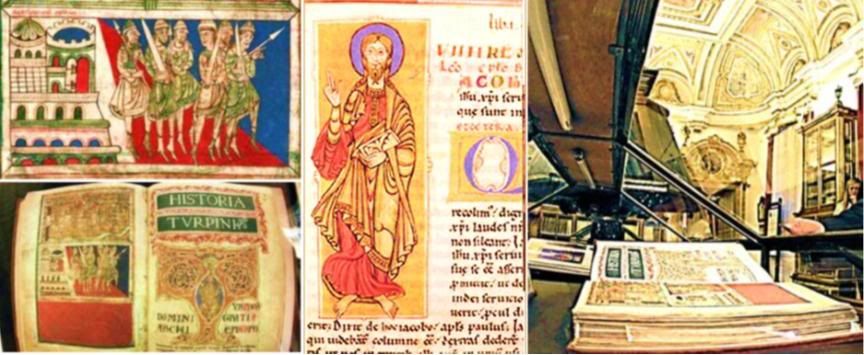 From left, title pages from the Codex; an image of St. James in the book; and a facsimile of the Cedex on permanent display in the Cathedral museum.
The good news is that the Codex was recovered last July 3 - 8 days short of the anniversary of its loss. And the bad news it that it was found hidden in the garage of a former employee of the cathedral. The presumed thief had worked as a caretaker and odd-job man at the Cathedral for more than 25 years but was dismissed early last year. He had been suing cathedral authorities for unfair dismissal at the time of the theft on July, 5, 2011.
From left, title pages from the Codex; an image of St. James in the book; and a facsimile of the Cedex on permanent display in the Cathedral museum.
The good news is that the Codex was recovered last July 3 - 8 days short of the anniversary of its loss. And the bad news it that it was found hidden in the garage of a former employee of the cathedral. The presumed thief had worked as a caretaker and odd-job man at the Cathedral for more than 25 years but was dismissed early last year. He had been suing cathedral authorities for unfair dismissal at the time of the theft on July, 5, 2011.
The 225-page book, thought to date from around 1150, was only brought out on special occasions such as Pope Benedict XVI’s visit in November 2010.
- Also this time last year, the State of New York became the first US state to legislate same-sex marriage as the full equivalent of conventional marriage between a man and a woman.
|
| |
|
|
|
|